Choosing the right university for a professional course like Engineering, Medicine, or Law is a critical decision for many Nigerian students. These fields are highly competitive and require quality education, top-notch facilities, and experienced faculty members. In this article, we’ll highlight the best universities in Nigeria for Engineering, Medicine, and Law, based on their academic excellence, infrastructure, and reputation.
READ ALSO: State Universities vs Federal Universities: Which One Is Better After JAMB 2025?
Table of Contents
🌟 Recommended for You
- Study Abroad Opportunities for JAMB 2025 Candidates — See Top Scholarships
- How JAMB 2025 Candidates Can School in the USA with Full Sponsorship
- Apply for Fully Funded Scholarships After Writing JAMB 2025
- Don't Miss Scholarship Opportunities for JAMB 2025 Students
- Best Scholarships for Students Preparing for JAMB 2025
Best Universities for Engineering in Nigeria
The following list of top universities for Engineering in Nigeria is based on the Scimago Institutions Rankings (SIR), an internationally recognized ranking system that evaluates universities based on research performance, innovation output, and societal impact. These rankings provide an objective assessment of each institution’s contributions to engineering education and research.
| Nigeria Ranking | Global Ranking | Universities |
|---|---|---|
| 1 | 1962 | Ladoke Akintola University of Technology (LAUTECH) |
| 2 | 2739 | Covenant University |
| 3 | 3130 | University of Ilorin (UNILORIN) |
| 4 | 3259 | Ahmadu Bello University (ABU) |
| 5 | 3277 | Landmark University |
| 6 | 3358 | University of Nigeria, Nsukka (UNN) |
| 7 | 3412 | University of Lagos (UNILAG) |
| 8 | 3427 | Federal University of Technology, Owerri (FUTO) |
| 9 | 3452 | Nnamdi Azikiwe University (UNIZIK) |
| 10 | 3515 | Obafemi Awolowo University (OAU) |
Engineering remains one of the most sought-after courses in Nigeria, offering promising career opportunities. Below are the top 10 universities for engineering in Nigeria:
1. Ladoke Akintola University of Technology (LAUTECH)

Ladoke Akintola University of Technology (LAUTECH), located in Ogbomoso, Oyo State, was established in 1990 and named after Chief Samuel Ladoke Akintola, a prominent Nigerian statesman. As a public university, LAUTECH has become one of Nigeria’s leading institutions for engineering education, earning its position as 1st in Nigeria and 1962 globally according to the Scimago Institutions Rankings (SIR). With a motto of “Excellence, Integrity, and Service,” the university has consistently focused on blending theoretical knowledge with practical experience, producing highly skilled engineers who excel in their respective fields.
🌟 You Might Also Like
- Top Scholarships JAMB 2025 Candidates Should Apply for This Year
- Fully Funded Scholarships Available for JAMB 2025 Students — Apply Now
- Discover Study Abroad Opportunities After Writing JAMB 2025
- How JAMB 2025 Students Can Study in the USA with Full Sponsorship
- Apply Now for Scholarships Open to JAMB 2025 Candidates
The university is renowned for its state-of-the-art engineering laboratories, advanced research centers, and well-equipped workshops, enabling students to engage in hands-on training and research-driven projects. LAUTECH’s emphasis on technology integration and research innovation has set it apart as a leader in engineering education. Research initiatives in areas such as renewable energy, information technology, and infrastructural development have contributed significantly to its high ranking.
One of the core strengths of LAUTECH is its industry partnerships, which provide students with opportunities for internships, industrial attachments, and collaborative projects with top engineering firms. These industry connections ensure that students graduate with both academic knowledge and practical experience, making them highly employable in a competitive market. The institution also prioritizes a student-focused approach, offering support systems like academic mentoring, career counseling, and entrepreneurial training programs.
LAUTECH graduates are recognized for their ability to solve real-world engineering problems, thanks to the institution’s focus on research-based education and innovation. Over the years, the university has built a reputation for producing graduates who are not only technically proficient but also ethical and professional in their practice. With its commitment to advancing technology, improving research outcomes, and maintaining academic excellence, LAUTECH remains a trailblazer in engineering education in Nigeria.
- Strengths: Strong focus on practical engineering education, advanced laboratories, and a technology-driven curriculum.
- Reputation: Highly regarded for producing skilled engineers with hands-on experience and technical expertise.
- Program Duration: 5 years
2. Covenant University
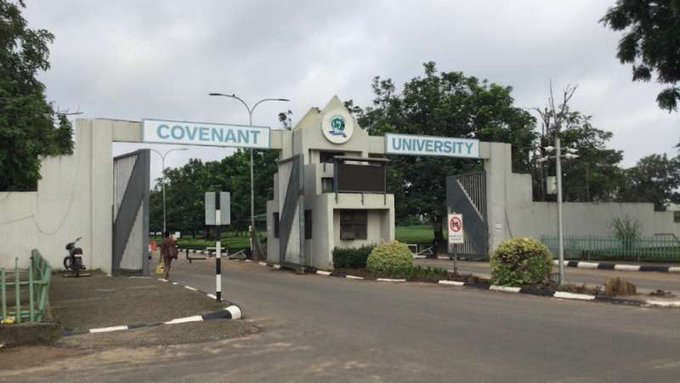
Covenant University, located in Ota, Ogun State, was established in 2002 by the Living Faith Church Worldwide under the visionary leadership of Dr. David Oyedepo. As a private Christian university, Covenant University has consistently set high academic standards, making it one of Nigeria’s most prestigious institutions for engineering education. Ranked 2nd in Nigeria and 2739 globally according to the Scimago Institutions Rankings (SIR), the university’s commitment to academic excellence, technological advancement, and innovation-driven education has earned it widespread recognition both locally and internationally.
The institution is known for its cutting-edge engineering facilities, well-equipped laboratories, and a research-driven curriculum that focuses on solving real-world problems. Covenant University’s emphasis on entrepreneurship, leadership development, and innovation ensures that students graduate not just as engineers, but as creators, leaders, and problem-solvers. The university fosters a culture of excellence and discipline, which reflects in the high performance of its graduates in the engineering industry.
One of the key reasons behind Covenant University’s impressive ranking is its investment in research and development. The institution actively encourages students and faculty to engage in groundbreaking research projects aimed at addressing national and global engineering challenges. This commitment to research is evident in the university’s growing portfolio of patents, scholarly publications, and industry collaborations.
Covenant University’s engineering programs are designed with a global perspective, preparing students to compete on international platforms. The institution’s focus on practical skills training, coupled with its strong partnerships with engineering firms and industry stakeholders, ensures that graduates are equipped with both theoretical knowledge and hands-on experience.
Furthermore, the university places significant importance on values-based education, instilling discipline, ethics, and professionalism in its students. This holistic approach to education not only shapes competent engineers but also individuals who are committed to making a positive impact on society. With its state-of-the-art facilities, renowned faculty members, and unwavering commitment to innovation, Covenant University continues to play a pivotal role in shaping the future of engineering education in Nigeria.
- Strengths: Cutting-edge engineering facilities, emphasis on innovation, and research-oriented teaching.
- Reputation: Known for academic excellence and producing globally competitive engineers.
- Program Duration: 5 years
3. University of Ilorin (UNILORIN)
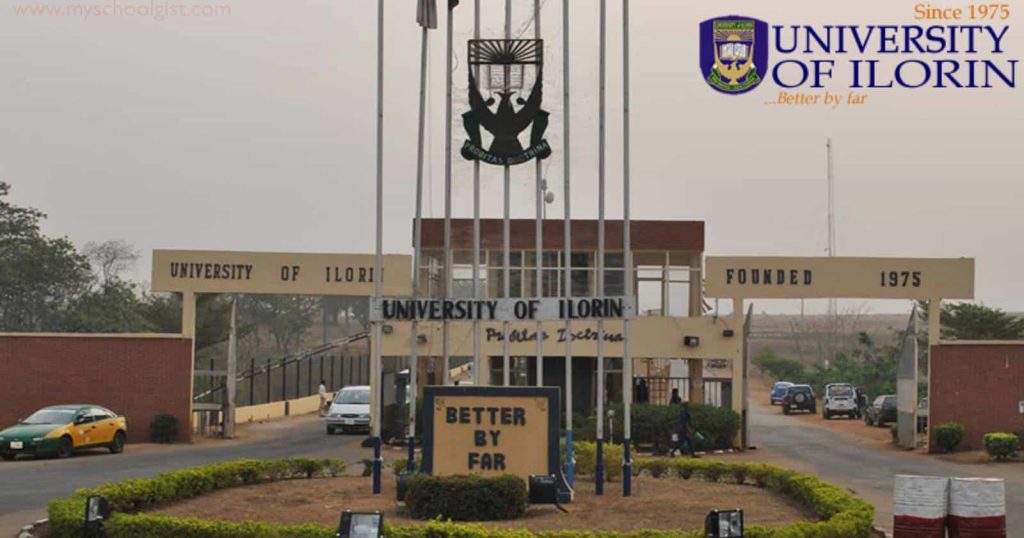
The University of Ilorin (UNILORIN), located in Ilorin, Kwara State, was established in 1975 by a decree of the Federal Military Government of Nigeria. As one of Nigeria’s oldest federal universities, UNILORIN has built a strong reputation for academic excellence, research output, and stability in its academic calendar. Ranked 3rd in Nigeria and 3130 globally in Engineering according to the Scimago Institutions Rankings (SIR), the university has consistently demonstrated its commitment to producing highly skilled engineers equipped to meet both local and global challenges.
UNILORIN is renowned for its robust engineering programs, designed to combine theoretical knowledge with practical application. The Faculty of Engineering and Technology is home to well-equipped laboratories, modern workshops, and specialized research centers, all aimed at providing students with hands-on experience. The university’s curriculum is carefully crafted to align with global industry standards, ensuring that graduates remain competitive in the ever-evolving engineering sector.
One of the key strengths of UNILORIN lies in its stable academic calendar, which allows students to complete their programs without prolonged interruptions. This consistency has earned the university a reputation as one of Nigeria’s most reliable higher education institutions. Additionally, UNILORIN maintains strong partnerships with industries and research organizations, enabling students to gain valuable exposure through internships, industrial training, and collaborative research projects.
Research remains a cornerstone of UNILORIN’s engineering faculty, with a strong emphasis on technological innovation and sustainable solutions. Faculty members and students are actively engaged in research projects addressing renewable energy, infrastructure development, and environmental sustainability. The university also promotes a culture of entrepreneurship among engineering students, equipping them with the skills to become job creators rather than job seekers.
The university’s alumni network is another point of pride, with many graduates holding leadership roles in engineering firms, government agencies, and academic institutions worldwide. This speaks to the quality of education and training that UNILORIN provides.
With its commitment to excellence, student-focused approach, and dedication to research and innovation, the University of Ilorin continues to be a top choice for aspiring engineers in Nigeria.
- Strengths: Stable academic calendar, well-equipped engineering workshops, and strong focus on technical training.
- Reputation: Known for consistency in academic delivery and quality engineering graduates.
- Program Duration: 5 years
4. Ahmadu Bello University (ABU)

Ahmadu Bello University (ABU), located in Zaria, Kaduna State, was established in 1962 and named after Sir Ahmadu Bello, the Sardauna of Sokoto and one of Nigeria’s foremost leaders. As one of the oldest and largest universities in sub-Saharan Africa, ABU has long been a cornerstone of engineering education and research in Nigeria. Ranked 4th in Nigeria and 3259 globally in Engineering according to the Scimago Institutions Rankings (SIR), the university continues to uphold its legacy of academic excellence and impactful research.
The Faculty of Engineering at ABU is one of the most prestigious in the country, offering a wide range of undergraduate and postgraduate engineering programs. The faculty is equipped with modern laboratories, research centers, and state-of-the-art workshops designed to provide students with practical, hands-on experience. ABU’s engineering curriculum places significant emphasis on theoretical depth, practical application, and problem-solving skills, ensuring that graduates are well-prepared for careers in various engineering fields.
ABU has built a reputation for its strong research culture, with faculty members and students actively involved in groundbreaking projects in areas such as renewable energy, telecommunications, civil infrastructure, and agricultural engineering. These research efforts are often in collaboration with government agencies, private sector organizations, and international partners, further cementing ABU’s position as a leader in engineering innovation.
Another distinguishing factor is ABU’s commitment to industry partnerships and student internships, which offer students real-world exposure to the challenges and demands of the engineering profession. These collaborations ensure that students graduate not only with academic knowledge but also with practical experience and professional readiness.
The university is also recognized for its diverse student population, drawing students from all regions of Nigeria and neighboring countries. This diversity fosters a rich cultural exchange and a collaborative learning environment, preparing students to excel in global engineering workplaces.
ABU’s alumni network is one of the most extensive in Nigeria, with graduates holding key positions in engineering firms, academia, and government agencies worldwide. This network serves as both an inspiration and a support system for current students.
With its rich history, dedication to academic excellence, and focus on impactful research, Ahmadu Bello University remains one of the most respected institutions for engineering education in Nigeria.
- Strengths: Robust engineering curriculum, experienced faculty, and strong industry connections.
- Reputation: Highly respected in Northern Nigeria for producing top-tier engineers with practical experience.
- Program Duration: 5 years
5. Landmark University
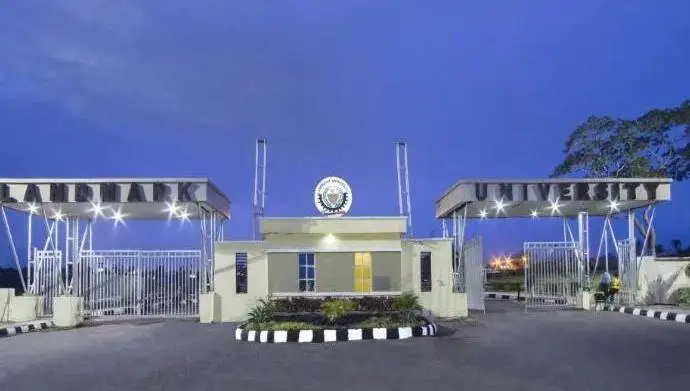
Landmark University, located in Omu-Aran, Kwara State, was established in 2011 by the Living Faith Church Worldwide, the same organization behind Covenant University. Despite being a relatively young institution, Landmark University has quickly risen in prominence, earning its place as 5th in Nigeria and 3277 globally in Engineering, according to the Scimago Institutions Rankings (SIR). The university’s rapid rise can be attributed to its strong emphasis on innovation, technology, and sustainable development in engineering education.
Landmark University is built on a foundation of academic excellence, ethical leadership, and a commitment to agricultural and technological advancement. The Faculty of Engineering houses state-of-the-art laboratories, cutting-edge research facilities, and modern workshops, providing students with a conducive environment for hands-on learning. The curriculum is carefully crafted to combine theoretical knowledge with practical applications, ensuring that graduates are equipped with both technical proficiency and problem-solving skills.
One of the standout features of Landmark University is its focus on research-driven engineering solutions, particularly in areas like renewable energy, sustainable agriculture, and infrastructure development. The university encourages both students and faculty to engage in impactful research projects that address critical national and global challenges. Additionally, Landmark University promotes an entrepreneurial mindset among students, empowering them to develop innovative solutions and contribute meaningfully to society.
Strong industry partnerships also play a pivotal role in the university’s success. Through collaborations with engineering firms, technology companies, and government agencies, Landmark University ensures that its students have access to internships, mentorship programs, and real-world exposure during their studies. This approach enhances employability and prepares graduates to excel in their professional careers.
The university also emphasizes character building and leadership training, ensuring that graduates not only possess technical expertise but also demonstrate integrity, responsibility, and a commitment to excellence in their professional and personal lives.
Landmark University’s rapid rise in national and global rankings is a testament to its strategic vision, dedication to academic excellence, and focus on producing industry-ready graduates. With a mission to drive societal transformation through education and innovation, Landmark University continues to establish itself as a key player in Nigeria’s engineering education landscape.
- Strengths: Innovative teaching methods, modern engineering laboratories, and focus on sustainable technology.
- Reputation: Known for combining technical skills with ethical engineering practices.
- Program Duration: 5 years
6. University of Nigeria, Nsukka (UNN)
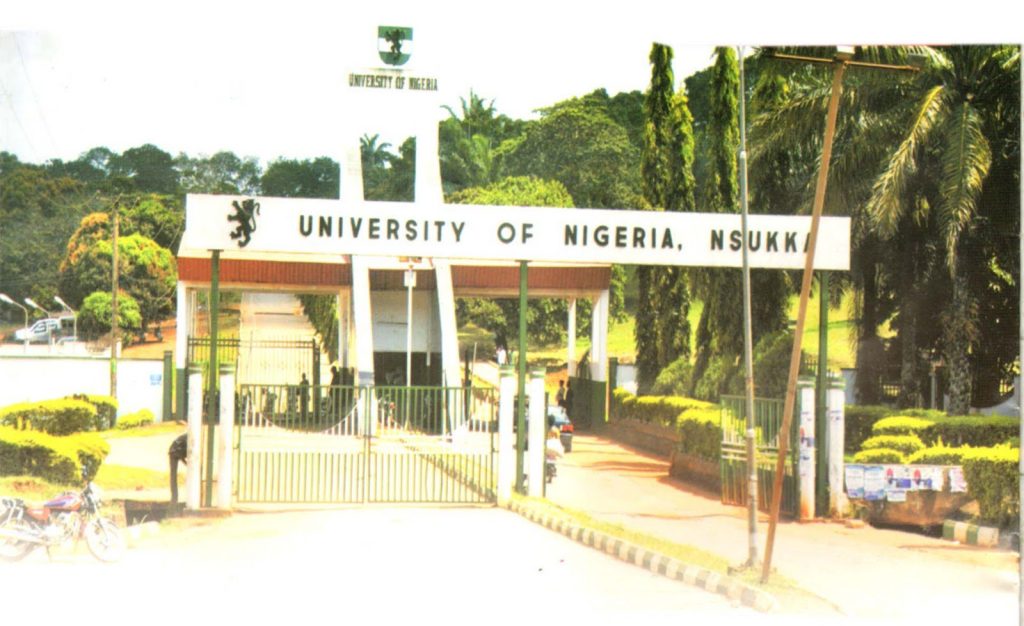
The University of Nigeria, Nsukka (UNN), located in Nsukka, Enugu State, was established in 1960 by Dr. Nnamdi Azikiwe, the first President of Nigeria. As Nigeria’s first indigenous university, UNN was modeled after the American education system and has since become a trailblazer in academic excellence, research, and innovation. Ranked 6th in Nigeria and 3358 globally in Engineering according to the Scimago Institutions Rankings (SIR), the institution remains one of the most respected universities in Nigeria and Africa.
UNN’s Faculty of Engineering is renowned for its robust academic curriculum, experienced faculty members, and emphasis on research and innovation. The university offers a wide range of engineering disciplines, including Civil Engineering, Mechanical Engineering, Electrical Engineering, and Metallurgical & Materials Engineering, among others. With state-of-the-art laboratories, modern workshops, and well-equipped research centers, UNN ensures students gain both theoretical knowledge and hands-on experience.
Research remains a central focus at UNN, with faculty and students engaged in groundbreaking projects addressing challenges in renewable energy, sustainable infrastructure, environmental engineering, and advanced manufacturing technologies. The university is home to several research centers dedicated to advancing engineering knowledge and creating innovative solutions to real-world problems.
UNN’s strong industry partnerships further elevate its engineering programs. Students benefit from collaborations with engineering firms, government agencies, and technology companies, gaining access to internships, industrial training programs, and professional mentorship opportunities. This ensures that graduates leave with not just academic knowledge but also practical experience and employable skills.
Another distinguishing factor of UNN is its commitment to fostering entrepreneurship among students. Through its entrepreneurial development programs, the university equips engineering students with the knowledge and skills needed to create and manage innovative businesses.
The alumni network of UNN is vast and influential, with many graduates holding leadership positions in multinational engineering firms, government agencies, and academic institutions both locally and internationally. This strong network serves as a valuable resource for current students and recent graduates navigating their professional journeys.
With its rich history, commitment to innovation, and dedication to academic excellence, the University of Nigeria, Nsukka continues to play a leading role in shaping Nigeria’s engineering sector and remains a top choice for aspiring engineers across the country.
- Strengths: Strong emphasis on engineering research, advanced facilities, and experienced academic staff.
- Reputation: A pioneer in engineering education with a long-standing legacy of academic excellence.
- Program Duration: 5 years
7. University of Lagos (UNILAG)
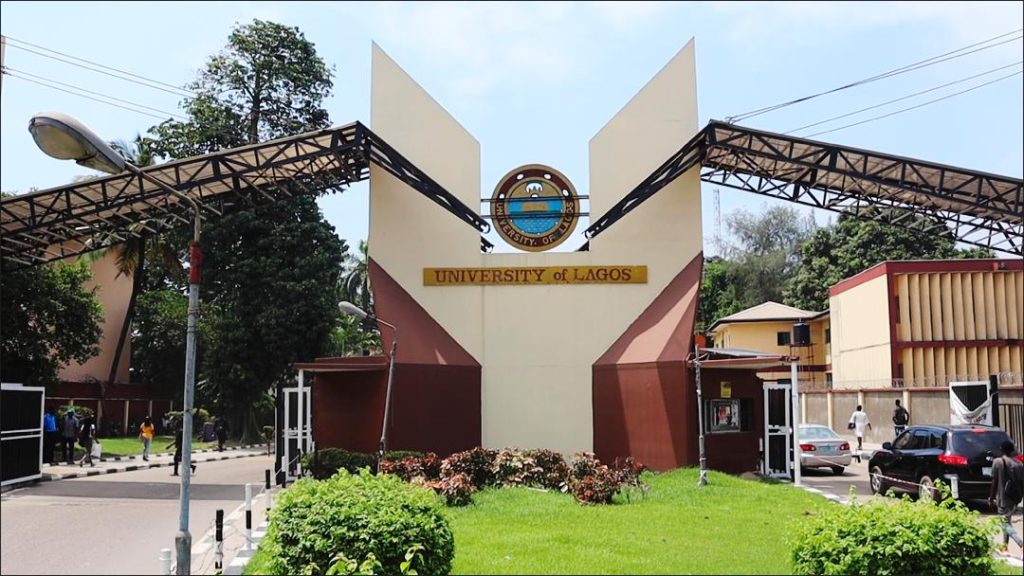
The University of Lagos (UNILAG), located in Akoka, Lagos State, was established in 1962 and is widely regarded as one of Nigeria’s most prestigious universities. Known as the “University of First Choice,” UNILAG has consistently set high standards in academics, research, and innovation. Ranked 7th in Nigeria and 3412 globally in Engineering according to the Scimago Institutions Rankings (SIR), the university continues to maintain its status as a leading institution in engineering education and research.
UNILAG’s Faculty of Engineering is one of the most well-established in Nigeria, offering a broad range of programs across disciplines such as Civil Engineering, Mechanical Engineering, Electrical & Electronics Engineering, Chemical Engineering, and Computer Engineering. With modern laboratories, well-equipped workshops, and advanced research facilities, the university provides students with an environment that fosters innovation, critical thinking, and problem-solving skills.
One of the standout features of UNILAG’s engineering program is its strategic partnerships with industry stakeholders, multinational corporations, and government agencies. These collaborations ensure students have access to internships, hands-on projects, and real-world engineering challenges throughout their academic journey. Such exposure not only enhances their technical expertise but also prepares them for leadership roles in the industry.
Research and development remain central to UNILAG’s engineering faculty. The university actively encourages both students and faculty members to participate in research projects focusing on renewable energy, infrastructure development, robotics, and sustainable technology. The institution’s engineering research outputs have earned both local and international recognition, contributing to advancements in various sectors.
UNILAG also prioritizes entrepreneurial development and innovation, equipping students with the necessary skills to create solutions to societal problems. The university regularly hosts hackathons, engineering fairs, and innovation competitions, providing students with platforms to showcase their ideas and prototypes.
Another strength of UNILAG is its strategic location in Lagos, Nigeria’s economic hub. This provides engineering students with access to numerous industries, corporate headquarters, and innovation centers, facilitating valuable networking opportunities and industry exposure.
The alumni network of UNILAG includes leaders in engineering firms, government agencies, and academic institutions worldwide. These successful graduates continue to contribute to the university’s legacy of excellence and innovation.
With its commitment to academic excellence, focus on cutting-edge research, and strong ties with industry stakeholders, the University of Lagos (UNILAG) remains a top choice for aspiring engineers in Nigeria and beyond.
- Strengths: Advanced engineering workshops, strong industry partnerships, and experienced faculty.
- Reputation: Known for producing highly skilled engineers who excel in both local and international industries.
- Program Duration: 5 years
8. Federal University of Technology, Owerri (FUTO)
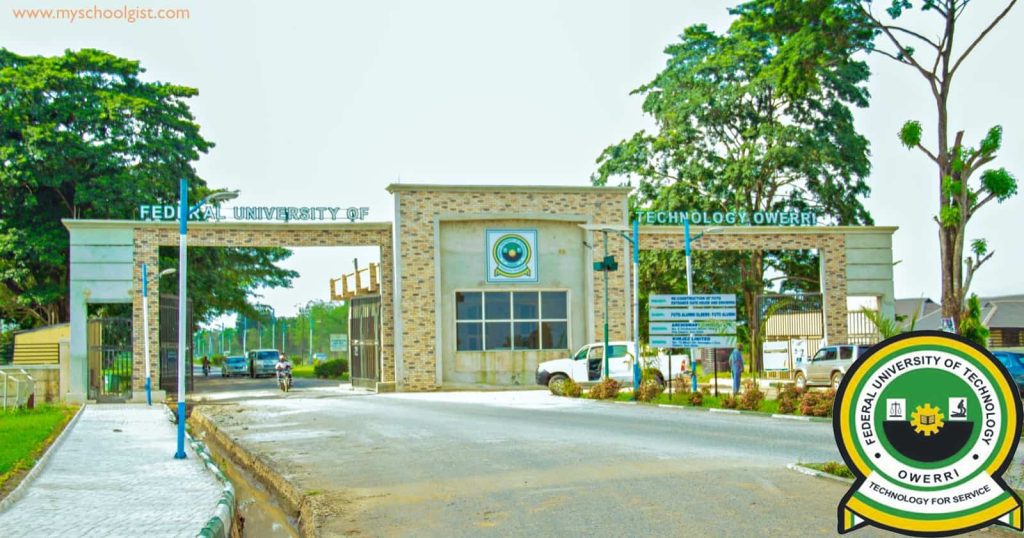
The Federal University of Technology, Owerri (FUTO), located in Owerri, Imo State, was established in 1980 as Nigeria’s premier university of technology. FUTO was specifically founded to advance technological education, research, and innovation in Nigeria, and it has since become a hub for developing skilled engineers and technologists. Ranked 8th in Nigeria and 3427 globally in Engineering according to the Scimago Institutions Rankings (SIR), FUTO continues to play a significant role in advancing the engineering sector in Nigeria.
The university offers a broad spectrum of engineering programs, including Mechanical Engineering, Civil Engineering, Electrical & Electronics Engineering, Chemical Engineering, Petroleum Engineering, and Agricultural Engineering. FUTO is renowned for its practical-oriented approach to engineering education, ensuring students gain both theoretical knowledge and hands-on experience. Its state-of-the-art laboratories, research facilities, and workshops are equipped to meet global standards, providing students with an environment conducive to innovation and creativity.
One of FUTO’s strengths lies in its commitment to research and development. Faculty and students are actively engaged in research projects addressing energy sustainability, environmental protection, renewable energy solutions, and infrastructure development. These projects often receive funding and support from government agencies, international organizations, and private sector partners, showcasing the university’s role as a critical contributor to Nigeria’s technological growth.
FUTO also emphasizes industry collaborations and partnerships, ensuring students have access to internships, industrial training programs, and mentorship opportunities with reputable engineering firms and multinational companies. These collaborations not only expose students to real-world engineering challenges but also improve their employability upon graduation.
The university promotes entrepreneurship and innovation through various platforms, including engineering fairs, student innovation challenges, and technology incubation centers. This approach equips students with the ability to develop creative solutions and entrepreneurial mindsets, preparing them for leadership roles in both industry and academia.
Another standout feature of FUTO is its diverse student body and inclusive academic culture, drawing students from different parts of Nigeria and neighboring countries. This cultural diversity fosters collaboration, teamwork, and cross-cultural learning, which are essential skills in the global engineering industry.
FUTO’s alumni network spans across Nigeria and the global engineering landscape, with graduates excelling in fields such as oil and gas, infrastructure, renewable energy, and manufacturing. The success stories of its alumni further validate FUTO’s reputation as a leading institution for engineering education in Nigeria.
With a strong foundation in research, innovation, industry partnerships, and a commitment to producing industry-ready graduates, the Federal University of Technology, Owerri (FUTO) remains a cornerstone of engineering education in Nigeria and continues to make significant contributions to technological advancement.
- Strengths: Technology-focused curriculum, strong research culture, and hands-on engineering training.
- Reputation: Recognized as a leader in applied engineering education and innovation.
- Program Duration: 5 years
9. Nnamdi Azikiwe University (UNIZIK)

Nnamdi Azikiwe University (UNIZIK), located in Awka, Anambra State, was established in 1991 and named after Dr. Nnamdi Azikiwe, Nigeria’s first President and a prominent advocate for education and national development. As one of Nigeria’s leading federal universities, UNIZIK has built a solid reputation for academic excellence, innovation, and research-driven education. Ranked 9th in Nigeria and 3452 globally in Engineering according to the Scimago Institutions Rankings (SIR), the university continues to play a significant role in advancing technological education in Nigeria.
The Faculty of Engineering at UNIZIK offers a wide range of programs, including Civil Engineering, Mechanical Engineering, Electrical and Electronics Engineering, Chemical Engineering, Industrial and Production Engineering, and Metallurgical and Materials Engineering. These programs are delivered through a blend of theoretical instruction, laboratory experiments, and fieldwork, ensuring students gain a comprehensive understanding of engineering principles and applications.
One of the defining strengths of UNIZIK’s engineering faculty is its commitment to practical, hands-on education. The university is equipped with modern laboratories, research centers, and engineering workshops, providing students with access to state-of-the-art equipment and tools necessary for their training. This emphasis on experiential learning prepares graduates to face real-world engineering challenges confidently.
Research remains a priority at UNIZIK, with faculty and students actively engaged in cutting-edge projects in renewable energy, environmental engineering, infrastructure development, and advanced manufacturing technologies. The university frequently collaborates with government agencies, private companies, and international organizations to drive impactful research and innovation.
Another significant factor contributing to UNIZIK’s ranking is its industry partnerships and collaborations with engineering firms and multinational corporations. These relationships create opportunities for student internships, industrial attachments, and knowledge-sharing programs, enabling students to bridge the gap between academia and industry.
UNIZIK is also known for its focus on entrepreneurship and innovation, encouraging students to develop problem-solving skills and entrepreneurial mindsets. Initiatives such as innovation fairs, engineering competitions, and startup incubation programs provide platforms for students to showcase their ideas and prototypes.
The university’s alumni network is vast and influential, with graduates occupying leadership positions in multinational corporations, government agencies, and academia both within and outside Nigeria. This network serves as a support system and inspiration for current students, helping them navigate their academic and professional journeys effectively.
In addition to academic excellence, UNIZIK fosters an environment of collaboration, discipline, and cultural inclusivity, bringing together students from diverse backgrounds to work towards common goals.
With its commitment to research, industry partnerships, entrepreneurship, and hands-on education, Nnamdi Azikiwe University (UNIZIK) continues to solidify its position as one of Nigeria’s top engineering institutions, preparing students to become key contributors to technological and infrastructural development in the country.
- Strengths: Modern engineering facilities, emphasis on technical expertise, and well-structured engineering programs.
- Reputation: Known for producing skilled engineers ready for global challenges.
- Program Duration: 5 years
10. Obafemi Awolowo University (OAU)

Obafemi Awolowo University (OAU), located in Ile-Ife, Osun State, was established in 1961 and originally named University of Ife before being renamed in honor of Chief Obafemi Awolowo, one of Nigeria’s founding fathers and a strong advocate for education. As one of Nigeria’s most prestigious universities, OAU has earned a reputation for academic excellence, groundbreaking research, and innovative teaching methods. Ranked 10th in Nigeria and 3515 globally in Engineering according to the Scimago Institutions Rankings (SIR), OAU remains a cornerstone of engineering education in Nigeria.
The Faculty of Technology at OAU is one of the oldest and most respected engineering faculties in Nigeria. It offers a diverse range of programs, including Civil Engineering, Mechanical Engineering, Electrical and Electronics Engineering, Agricultural Engineering, Chemical Engineering, and Computer Engineering. Known for its strong emphasis on both theoretical knowledge and practical applications, OAU equips its students with the skills needed to address real-world engineering problems effectively.
One of the university’s standout strengths is its state-of-the-art engineering laboratories, well-equipped workshops, and advanced research facilities. These resources enable students to gain hands-on experience, ensuring they graduate with a deep understanding of engineering concepts and their practical applications. The institution also encourages cross-disciplinary research and innovation, fostering collaboration across different engineering and scientific fields.
OAU has a strong culture of research and development, with faculty and students actively participating in projects related to renewable energy, infrastructure development, sustainable engineering practices, and environmental protection. Research outputs from OAU have contributed significantly to national development, and many projects have attracted international recognition and funding.
The university’s strong industry connections provide students with opportunities for internships, industrial training, and mentorship programs with leading engineering firms and government agencies. These collaborations ensure that OAU graduates are not only knowledgeable but also industry-ready, equipped with the skills and experience necessary to excel in their careers.
OAU is also known for its entrepreneurial development programs, which encourage students to develop innovative solutions to engineering challenges and nurture startups within the university community. Events like innovation fairs, engineering expos, and tech competitions provide students with platforms to showcase their ideas and gain support from stakeholders.
The university boasts an impressive alumni network, with graduates holding leadership positions in engineering firms, multinational corporations, government agencies, and academia worldwide. This network serves as a source of mentorship, collaboration, and inspiration for current students.
Beyond academics, OAU is celebrated for its vibrant campus life, rich history, and cultural diversity, creating a holistic environment for students to thrive both academically and socially.
With its legacy of academic excellence, focus on innovation, strong research output, and dedication to producing globally competitive graduates, Obafemi Awolowo University (OAU) remains one of Nigeria’s top engineering institutions, shaping the future of engineering education and contributing significantly to technological advancements in the country.
- Strengths: Comprehensive engineering education, strong emphasis on research, and experienced faculty members.
- Reputation: One of Nigeria’s oldest and most prestigious universities for engineering studies.
- Program Duration: 5 years
Best Universities for Medicine in Nigeria
Here are the top 10 universities in Nigeria for studying Medicine, based on the Times Higher Education 2024 ranking:
| S/N | Universities | Nigeria Ranking | Global Ranking |
|---|---|---|---|
| 1. | University of Ibadan (UI) | 1 | 801-1000 |
| 2. | Federal University of Technology Akure | 2 | 1001-1200 |
| 3. | University of Lagos | 3 | 1001-1200 |
| 4. | Bayero University Kano (BUK) | 4 | 1201-1500 |
| 5. | University of Ilorin (UNILORIN) | 4 | 1201-1500 |
| 6. | Afe Babalola University | 5-10 | 1501+ |
| 7. | University of Benin (UNIBEN) | 5-10 | 1501+ |
| 8. | Ladoke Akintola University of Tecnology (LAUTECH) | 5-10 | 1501+ |
| 9. | Lagos State University | 5-10 | 1501+ |
| 10. | Nnamdi Azikiwe University (UNIZIK) | 5-10 | 1501+ |
Medicine is one of the most competitive and prestigious courses in Nigeria. Below are the top 10 universities offering Medicine based on the ranking provided by Times Higher Education for 2024:
1. University of Ibadan (UI)
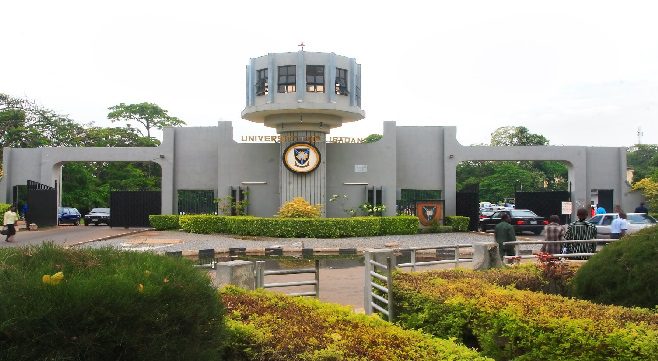
The University of Ibadan (UI), located in Ibadan, Oyo State, is a federal university and Nigeria’s first and oldest tertiary institution. Established in 1948 as an affiliate of the University of London, it gained full autonomy in 1962 and has since become a symbol of excellence in medical education, research, and healthcare delivery. Renowned for its contributions to the medical field, UI is ranked 1st in Nigeria and 801-1000 globally for Medicine according to the Scimago Institutions Rankings (SIR).
At the heart of the University of Ibadan’s medical excellence is the College of Medicine, one of the oldest and most prestigious medical faculties in Africa. This college operates in close collaboration with the University College Hospital (UCH), a top-tier teaching hospital recognized across the continent for its advanced medical facilities, specialized care units, and experienced healthcare professionals. UCH serves as the primary training ground for medical students, offering them hands-on exposure to real-world medical scenarios across diverse fields of healthcare.
Research remains a cornerstone of UI’s medical faculty, with active projects in infectious diseases, maternal and child health, oncology, and public health interventions. Many of these research initiatives are conducted in partnership with global institutions and funding bodies, contributing significantly to medical advancements both locally and internationally. These efforts have placed UI at the forefront of addressing critical healthcare challenges, from combating tropical diseases to improving maternal health outcomes.
Community health is also a core focus of the university. Medical students participate in extensive outreach programs, bringing essential healthcare services to underserved rural and urban populations. These initiatives not only provide valuable clinical experience for students but also reinforce the university’s commitment to addressing Nigeria’s healthcare disparities.
The university’s medical graduates are celebrated worldwide for their expertise, professionalism, and contributions to healthcare. Many hold prominent positions in hospitals, research institutions, government agencies, and international health organizations. This extensive alumni network continues to reflect the institution’s legacy of excellence and global impact.
Through its dedication to research, clinical excellence, community service, and academic rigor, the University of Ibadan (UI) continues to set the gold standard for medical education in Nigeria, solidifying its place as a leader in shaping the country’s healthcare future.
- Strengths: State-of-the-art teaching hospital, experienced medical faculty.
- Reputation: Nigeria’s oldest university with a strong focus on medical research.
- Program Duration: 6 years.
2. Federal University of Technology, Akure (FUTA)
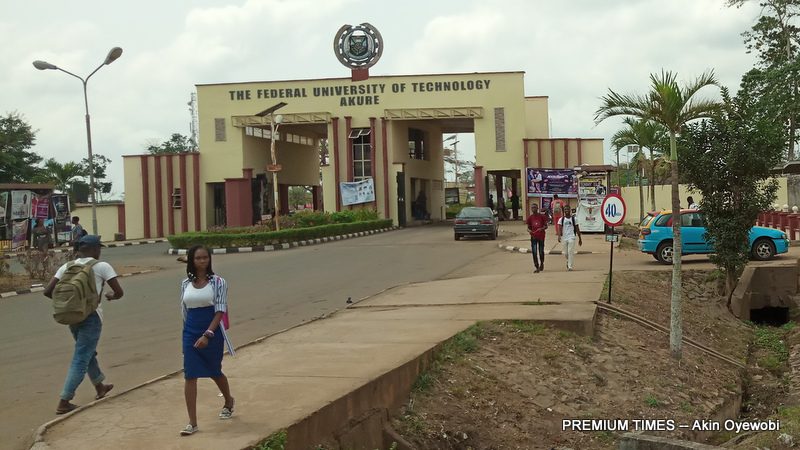
The Federal University of Technology, Akure (FUTA), located in Akure, Ondo State, is a federal university established in 1981 with the vision of advancing technological education and research in Nigeria. Although primarily known for its excellence in technology and engineering disciplines, FUTA has made remarkable strides in medical sciences and health-related research, earning it a place among Nigeria’s top medical institutions. Ranked 2nd in Nigeria and 1001-1200 globally for Medicine according to the Scimago Institutions Rankings (SIR), the university stands out for its commitment to integrating technology with medical sciences to address contemporary healthcare challenges.
FUTA’s medical programs are designed to bridge the gap between technology and healthcare, emphasizing research, innovation, and advanced medical training. The institution is home to modern medical laboratories, simulation centers, and health research facilities, providing students with state-of-the-art tools to explore medical science through a technological lens. This approach ensures that graduates are not only equipped with clinical knowledge but are also well-versed in applying technological solutions to medical challenges.
Research is a defining pillar of FUTA’s medical faculty. The university actively promotes multidisciplinary research projects that address healthcare concerns such as disease control, biotechnology applications in medicine, telemedicine, and sustainable healthcare solutions. These research initiatives often attract funding and collaborations with international organizations, governmental health agencies, and research institutes, solidifying FUTA’s role in advancing healthcare innovation.
The university also prioritizes student exposure to industry practices through internships, industrial training programs, and partnerships with leading healthcare institutions across Nigeria and beyond. FUTA’s focus on blending classroom learning with practical experience ensures that its medical graduates are industry-ready, technologically proficient, and solution-oriented.
In addition to academic and research excellence, FUTA emphasizes community health and outreach programs. Medical students and faculty are actively involved in health campaigns, rural medical missions, and public health interventions, bringing healthcare services to underserved communities and addressing local health concerns.
The university’s commitment to innovation, integration of technology in healthcare, and extensive research focus has earned FUTA recognition not just in Nigeria but globally. Its graduates are well-regarded for their technical proficiency, research competence, and adaptability, often securing leadership positions in healthcare sectors, research laboratories, and medical technology firms.
Through its unique blend of technological expertise, medical training, and research-driven education, the Federal University of Technology, Akure (FUTA) continues to redefine medical education in Nigeria, preparing a new generation of healthcare professionals capable of addressing 21st-century medical challenges.
- Strengths: Strong emphasis on technology integration in medical sciences, research-driven curriculum, and modern laboratory facilities.
- Reputation: Known for blending technology and medical studies to produce innovative healthcare solutions.
- Program Duration: 6 years
3. University of Lagos (UNILAG)

The University of Lagos (UNILAG), located in Akoka, Lagos State, is a federal university established in 1962. Widely regarded as one of Nigeria’s most prestigious institutions, UNILAG has earned a strong reputation for academic excellence, innovative research, and leadership development across various fields, including medicine and healthcare sciences. Ranked 3rd in Nigeria and 1001-1200 globally for Medicine according to the Scimago Institutions Rankings (SIR), UNILAG continues to play a crucial role in advancing medical education, research, and healthcare delivery in Nigeria.
The College of Medicine, University of Lagos (CMUL), is one of the most distinguished medical schools in Nigeria. Partnered with the Lagos University Teaching Hospital (LUTH), one of the largest and most advanced teaching hospitals in West Africa, CMUL provides its students with comprehensive clinical exposure and hands-on training. LUTH serves as the primary training ground for medical students, offering access to specialized medical facilities, advanced surgical equipment, and experienced healthcare professionals across a wide range of specialties.
UNILAG’s medical curriculum combines rigorous academic instruction with extensive clinical practice, ensuring that students develop the theoretical knowledge and practical skills required to excel in healthcare professions. The institution also places a strong emphasis on research and innovation, encouraging students and faculty members to engage in cutting-edge medical research projects in areas such as infectious diseases, tropical medicine, maternal and child health, oncology, and public health interventions. Many of these research initiatives are funded by international health organizations and government agencies, highlighting the university’s global relevance.
Beyond academics, UNILAG is known for fostering a culture of community service and public health outreach. Medical students and staff participate actively in health missions, vaccination campaigns, and rural healthcare initiatives, addressing critical health issues in underserved communities. These outreach programs not only improve healthcare access for vulnerable populations but also provide students with valuable real-world experience.
The institution’s strategic location in Lagos, Nigeria’s economic and commercial hub, provides medical students with unique opportunities to collaborate with top-tier healthcare providers, pharmaceutical companies, and global health organizations. This exposure ensures that graduates are well-equipped to excel in diverse medical settings, both locally and internationally.
UNILAG’s alumni network includes some of Nigeria’s most influential medical professionals, many of whom have made significant contributions to healthcare, research, and policy-making globally. These alumni serve as mentors, role models, and industry connections for current students, further enriching their academic and professional experiences.
With its robust curriculum, access to world-class teaching facilities, emphasis on research, and commitment to community healthcare, the University of Lagos (UNILAG) remains a pillar of excellence in medical education in Nigeria, preparing future generations of healthcare professionals to address both local and global health challenges effectively.
- Strengths: Teaching hospital with modern equipment, top medical faculty.
- Reputation: Recognized for quality medical education and clinical exposure.
- Program Duration: 6 years.
4. Bayero University Kano (BUK)
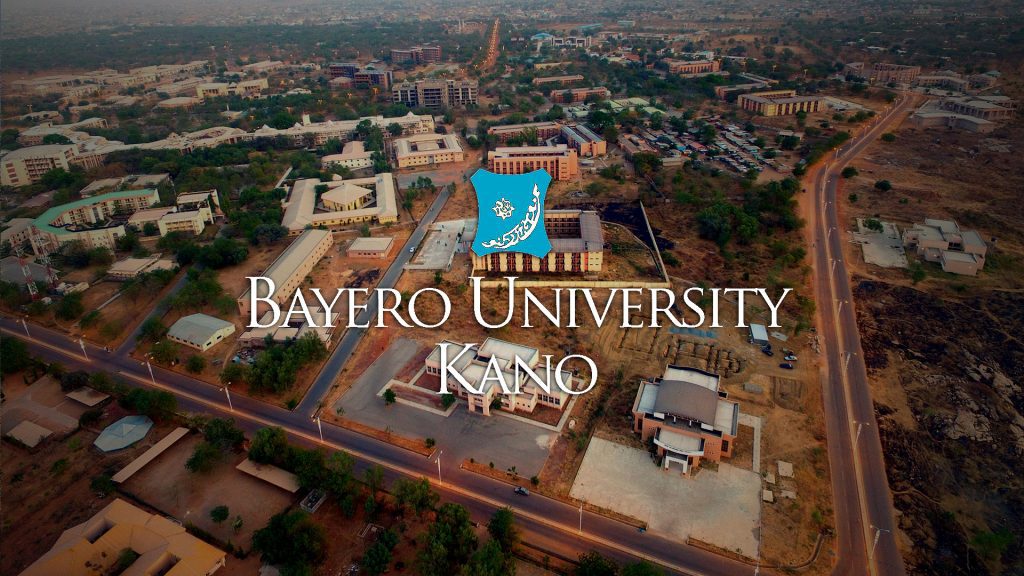
The Bayero University Kano (BUK), located in Kano, Kano State, is a federal university established in 1977. Originally founded as Ahmadu Bello College in 1960 and later upgraded to a university, BUK has grown to become one of the most prominent higher education institutions in Northern Nigeria. Known for its commitment to academic excellence, healthcare innovation, and community engagement, BUK is ranked 4th in Nigeria and 1201-1500 globally for Medicine according to the Scimago Institutions Rankings (SIR).
The university’s College of Health Sciences serves as a hub for medical education, research, and healthcare training. With its close affiliation to the Aminu Kano Teaching Hospital (AKTH), one of the leading teaching hospitals in Nigeria, BUK provides medical students with extensive clinical exposure and hands-on training. AKTH is well-equipped with modern diagnostic tools, surgical facilities, and specialized medical units, offering students the opportunity to gain real-world medical experience under the supervision of seasoned healthcare professionals.
BUK’s medical programs emphasize theoretical depth, clinical practice, and evidence-based medicine, ensuring that students are well-prepared to address contemporary healthcare challenges. The curriculum is designed to integrate public health, community medicine, and advanced clinical sciences, enabling students to develop a holistic understanding of healthcare delivery in diverse environments.
The university is also deeply committed to medical research and innovation, with faculty and students actively contributing to research in infectious diseases, tropical medicine, maternal and child health, and disease prevention. Collaborations with national and international research bodies have positioned BUK as a center of excellence in healthcare research, attracting funding and recognition for its impactful contributions.
Community health remains a core focus of BUK’s medical programs. Medical students and faculty are regularly involved in outreach initiatives, vaccination campaigns, and rural health interventions aimed at improving healthcare access in underserved regions. These programs not only address healthcare disparities but also instill a strong sense of social responsibility in future healthcare professionals.
One of BUK’s distinguishing strengths is its focus on cultural diversity and inclusivity. As a university located in Northern Nigeria, BUK attracts students from various cultural and ethnic backgrounds, fostering an environment of mutual respect and collaboration. This cultural diversity enriches the learning experience and prepares students to work effectively in multicultural healthcare settings.
The alumni network of BUK includes many successful medical professionals who have gone on to occupy leadership positions in hospitals, academia, government agencies, and international health organizations. These alumni continue to contribute to the development of healthcare systems in Nigeria and beyond, reflecting the high quality of education provided by the university.
With its strong emphasis on clinical training, research excellence, community engagement, and cultural inclusivity, the Bayero University Kano (BUK) remains a key player in Nigeria’s healthcare education landscape. The institution’s commitment to producing skilled, compassionate, and socially responsible medical professionals ensures its continued relevance in the global healthcare space.
- Strengths: Strong focus on clinical training, emphasis on community medicine, and experienced medical faculty.
- Reputation: Respected in Northern Nigeria for producing skilled and ethical healthcare professionals.
- Program Duration: 6 years
5. University of Ilorin (UNILORIN)
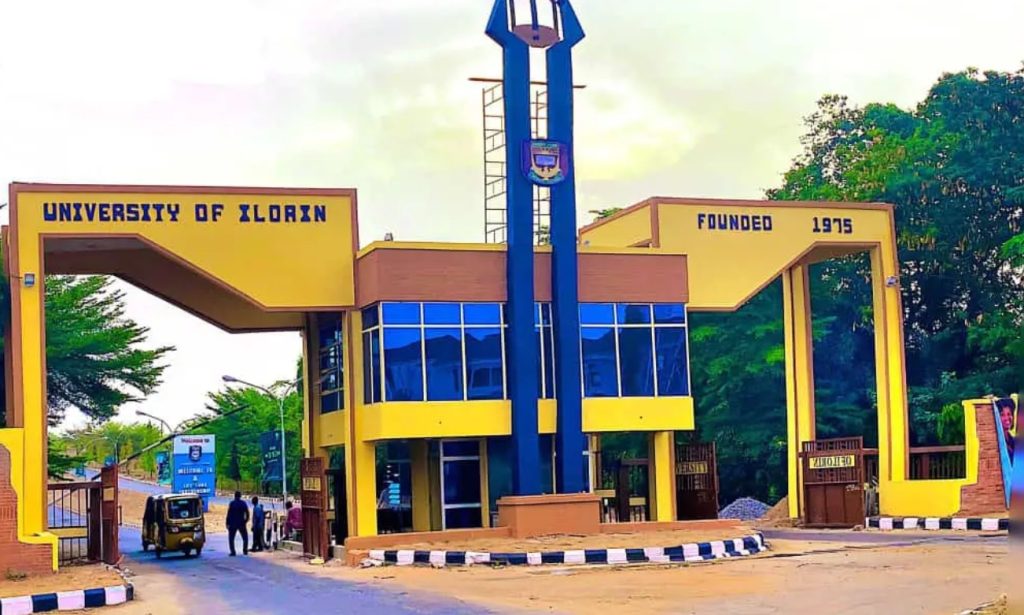
The University of Ilorin (UNILORIN), located in Ilorin, Kwara State, is a federal university established in 1975 by a decree of the Federal Military Government of Nigeria. Known for its consistent academic calendar, commitment to excellence, and focus on healthcare education, UNILORIN has become one of Nigeria’s most respected institutions. Ranked 5th in Nigeria and 1201-1500 globally for Medicine according to the Scimago Institutions Rankings (SIR), the university has maintained its reputation as a hub for medical education and research.
The Faculty of Clinical Sciences and the Faculty of Basic Medical Sciences form the backbone of medical education at UNILORIN. The university is affiliated with the University of Ilorin Teaching Hospital (UITH), one of the largest and most advanced medical facilities in Nigeria. UITH serves as a primary training ground for medical students, offering access to modern diagnostic equipment, surgical facilities, and specialized treatment units. This affiliation ensures students gain extensive clinical experience under the guidance of seasoned healthcare professionals.
At UNILORIN, the medical curriculum is carefully designed to blend theoretical knowledge with practical clinical exposure. Students are trained in various disciplines, including General Medicine, Surgery, Pediatrics, Obstetrics and Gynecology, and Public Health, ensuring a well-rounded medical education. The emphasis on evidence-based medicine and interdisciplinary collaboration prepares graduates to address healthcare challenges effectively.
Research is a cornerstone of medical education at UNILORIN. Faculty and students actively participate in research projects focusing on tropical diseases, maternal and child health, infectious diseases, and public health interventions. The university also collaborates with international health organizations, government agencies, and research institutions, ensuring access to funding and expertise for impactful studies.
Community healthcare is an integral part of UNILORIN’s medical training. Students and faculty regularly engage in health outreach programs, vaccination campaigns, and rural health initiatives, bringing quality healthcare services to underserved populations. These programs not only address critical health issues but also provide students with valuable real-world experience.
One of UNILORIN’s standout features is its stable academic calendar, which has earned the university a reputation for reliability and efficiency. Unlike many other Nigerian universities, UNILORIN has managed to avoid frequent disruptions, allowing students to graduate on schedule and enter the workforce without delays.
The alumni network of UNILORIN includes influential medical professionals who have made significant contributions in hospitals, research institutions, academia, and public health sectors both locally and internationally. This network serves as a valuable resource for mentorship and professional development for current students.
UNILORIN also prioritizes student welfare and academic support, offering services such as academic mentoring, career counseling, and professional workshops to ensure students are well-prepared for their careers in healthcare.
With its commitment to academic excellence, innovative research, community healthcare, and a stable academic environment, the University of Ilorin (UNILORIN) remains a top choice for aspiring medical professionals in Nigeria. The institution’s dedication to producing skilled, ethical, and globally competitive healthcare practitioners ensures its continued relevance in the field of medical education.
- Strengths: Stable academic calendar, well-equipped teaching hospital, and focus on hands-on medical practice.
- Reputation: Known for academic consistency and a commitment to producing reliable medical professionals.
- Program Duration: 6 years
6. Afe Babalola University (ABUAD)
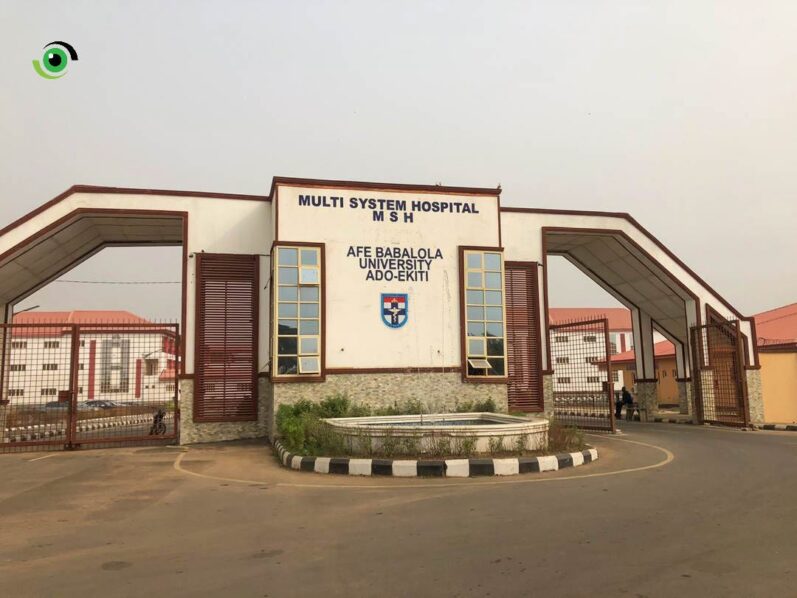
Afe Babalola University (ABUAD), located in Ado-Ekiti, Ekiti State, is a private university established in 2009 by Aare Afe Babalola (SAN), a renowned legal luminary and education advocate. Despite being relatively young, ABUAD has quickly risen to prominence as one of Nigeria’s leading institutions for medical education and healthcare innovation. Ranked 6th in Nigeria and 1501+ globally for Medicine according to the Scimago Institutions Rankings (SIR), ABUAD has earned national and international recognition for its state-of-the-art facilities, innovative curriculum, and commitment to excellence in healthcare education.
The College of Medicine and Health Sciences at ABUAD offers one of the most modern and well-equipped medical programs in Nigeria. The institution is home to the Afe Babalola University Multi-System Hospital (ABUAD MSH), a world-class teaching hospital equipped with cutting-edge medical technology, including advanced diagnostic tools, surgical suites, and intensive care units. ABUAD MSH not only serves as a training ground for medical students but also provides specialized healthcare services to the public, attracting patients from across Nigeria and beyond.
ABUAD’s medical curriculum emphasizes innovative teaching methodologies, evidence-based medicine, and practical clinical exposure. Students are trained by highly experienced faculty members drawn from Nigeria and abroad, ensuring they receive a globally competitive education. The program also integrates technology and research-driven practices, preparing students to tackle contemporary healthcare challenges with creativity and skill.
Research plays a central role in ABUAD’s medical training. The university invests heavily in healthcare research infrastructure, and both faculty members and students are encouraged to engage in cutting-edge research projects in areas such as tropical diseases, maternal and child health, oncology, and public health policy. These efforts are often supported by local and international partnerships, positioning ABUAD as a hub for medical research and innovation.
ABUAD also places a significant emphasis on entrepreneurship in healthcare, encouraging students to think beyond traditional medical practice. The university fosters a culture of innovation and leadership, equipping graduates with the skills needed to excel in various healthcare sectors, including clinical practice, research, health policy, and healthcare management.
Community engagement is another hallmark of ABUAD’s medical training. Students actively participate in health outreach programs, medical missions, and public health campaigns, providing essential healthcare services to underserved communities. These initiatives not only contribute to societal well-being but also allow students to develop empathy, cultural sensitivity, and problem-solving skills.
ABUAD’s graduates are widely regarded for their professionalism, clinical competence, and innovative mindset. Many alumni have gone on to excel in leading hospitals, healthcare organizations, and academic institutions both in Nigeria and internationally. This growing network of successful professionals reflects the university’s dedication to producing world-class medical practitioners.
With its world-class facilities, technology-driven curriculum, emphasis on research and entrepreneurship, and focus on community health, Afe Babalola University (ABUAD) stands as a model of excellence in medical education in Nigeria. Its forward-thinking approach ensures that graduates are not only equipped to provide top-tier healthcare but also to become leaders and innovators in the global medical community.
- Strengths: Modern teaching facilities, innovative medical curriculum, and advanced medical laboratories.
- Reputation: Known for quality private medical education with a strong focus on research and technology.
- Program Duration: 6 years
7. University of Benin (UNIBEN)

The University of Benin (UNIBEN), located in Benin City, Edo State, is a federal university established in 1970. Over the years, it has grown into one of Nigeria’s most respected institutions, celebrated for its academic excellence, clinical expertise, and impactful medical research. Ranked 7th in Nigeria and 1501+ globally for Medicine according to the Scimago Institutions Rankings (SIR), UNIBEN remains a top destination for aspiring medical professionals in Nigeria and beyond.
The university’s College of Medical Sciences is one of the oldest and most reputable in the country, offering a rigorous academic curriculum combined with extensive clinical exposure. Medical students at UNIBEN are primarily trained at the University of Benin Teaching Hospital (UBTH), one of Nigeria’s largest teaching hospitals. UBTH serves as a center for advanced medical treatment, specialized care, and groundbreaking research, providing students with real-world medical experiences in diverse healthcare settings. The hospital is equipped with modern diagnostic tools, surgical facilities, and intensive care units, ensuring students gain hands-on experience with cutting-edge medical technologies.
UNIBEN’s medical education emphasizes a balanced approach to theoretical knowledge, clinical practice, and medical research. The curriculum is designed to produce skilled, ethical, and compassionate healthcare professionals capable of addressing both local and global health challenges. The university also places a strong emphasis on evidence-based medicine, encouraging students to approach medical problems with a combination of scientific knowledge and critical thinking.
Research is a core component of the medical program at UNIBEN. Faculty members and students are actively involved in high-impact research projects, focusing on critical areas such as infectious diseases, oncology, maternal and child health, and public health policy. The university maintains partnerships with international health organizations, research institutes, and funding agencies, facilitating collaborative research efforts and knowledge exchange.
Community health is deeply ingrained in UNIBEN’s medical training philosophy. Medical students and faculty regularly participate in health outreach programs, vaccination campaigns, and public health education initiatives, providing healthcare services to underserved rural and urban communities. These outreach programs not only address healthcare disparities but also equip students with practical skills and foster empathy and cultural sensitivity.
The university’s medical faculty also emphasizes interdisciplinary collaboration, enabling students to work alongside peers from fields such as nursing, pharmacy, and medical laboratory sciences. This approach enhances teamwork, communication, and holistic patient care. Additionally, the institution integrates entrepreneurship and healthcare innovation into its curriculum, preparing graduates to explore opportunities beyond traditional medical practice.
UNIBEN’s alumni network includes some of Nigeria’s most distinguished medical professionals, many of whom have achieved success in clinical practice, academia, research, and public health administration both locally and internationally. This extensive network serves as a valuable resource for mentorship, collaboration, and professional growth for current students.
With its long-standing tradition of excellence, focus on clinical training, dedication to impactful research, and commitment to community health, the University of Benin (UNIBEN) continues to uphold its reputation as one of Nigeria’s premier institutions for medical education. Its graduates are equipped not only with technical expertise but also with the leadership qualities and compassion needed to make a meaningful impact in the healthcare sector.
- Strengths: Comprehensive medical education, reputable teaching hospital (UBTH), and strong clinical exposure.
- Reputation: Consistently produces well-trained medical professionals who excel locally and internationally.
- Program Duration: 6 years
8. Ladoke Akintola University of Technology (LAUTECH)

Ladoke Akintola University of Technology (LAUTECH), located in Ogbomoso, Oyo State, is a state-owned university established in 1990 and named after Chief Samuel Ladoke Akintola, a former Premier of the Western Region of Nigeria. Originally established to focus on technology and engineering education, LAUTECH has expanded its academic offerings to include a robust medical program. Ranked 8th in Nigeria and 1501+ globally for Medicine according to the Scimago Institutions Rankings (SIR), LAUTECH has gained significant recognition for its commitment to quality medical education, clinical training, and healthcare research.
At the heart of LAUTECH’s medical excellence is its Faculty of Clinical Sciences and Faculty of Basic Medical Sciences, both of which offer comprehensive training to future healthcare professionals. The university is affiliated with the LAUTECH Teaching Hospital (LTH) in Ogbomoso, a well-equipped medical center providing clinical exposure and practical training for medical students. The teaching hospital boasts modern diagnostic tools, well-equipped surgical theaters, and specialized treatment units, allowing students to gain hands-on experience in real-world medical scenarios under the guidance of experienced healthcare professionals.
The medical curriculum at LAUTECH combines theoretical depth, clinical proficiency, and evidence-based medical practices, ensuring students graduate with the skills and knowledge necessary to excel in diverse healthcare environments. Students are trained across multiple specialties, including General Medicine, Surgery, Pediatrics, Obstetrics and Gynecology, and Community Health, with an emphasis on addressing Nigeria’s unique healthcare challenges.
Research is a cornerstone of LAUTECH’s medical program, with faculty and students actively involved in projects focusing on infectious diseases, maternal and child health, healthcare technology, and rural health interventions. These research initiatives often attract collaborations with international organizations, research bodies, and healthcare agencies, allowing students to participate in impactful studies and gain global exposure.
One of LAUTECH’s key strengths is its emphasis on community health and outreach programs. Medical students are encouraged to participate in health missions, vaccination drives, and rural health campaigns, delivering essential healthcare services to underserved populations. These outreach initiatives not only address immediate healthcare needs but also foster empathy, cultural sensitivity, and problem-solving skills among students.
The university also integrates entrepreneurial training and innovation into its medical curriculum, encouraging students to develop creative healthcare solutions and medical technologies. This approach ensures that graduates are not only capable healthcare providers but also potential contributors to the growth of Nigeria’s healthcare sector through research, entrepreneurship, and policy development.
The alumni network of LAUTECH’s medical program includes graduates who have gone on to become leaders in healthcare, medical researchers, public health administrators, and policy advocates across Nigeria and beyond. This growing network reflects the institution’s dedication to producing skilled and ethical healthcare professionals who are equipped to tackle both local and global healthcare challenges.
Through its dedication to medical research, focus on practical training, commitment to community health, and emphasis on innovation, Ladoke Akintola University of Technology (LAUTECH) continues to strengthen its position as a key player in Nigeria’s medical education landscape. Its graduates emerge not only as skilled practitioners but also as change-makers capable of transforming healthcare systems locally and globally.
- Strengths: Integration of technology in medical studies, modern medical facilities, and emphasis on innovation.
- Reputation: Known for blending technology with medical sciences, producing forward-thinking healthcare professionals.
- Program Duration: 6 years
9. Lagos State University (LASU)

Lagos State University (LASU), located in Ojo, Lagos State, is a state-owned university established in 1983 by the Lagos State Government. Over the years, LASU has evolved into one of Nigeria’s leading institutions for medical education, research, and healthcare services. Ranked 9th in Nigeria and 1501+ globally for Medicine according to the Scimago Institutions Rankings (SIR), the university has earned a reputation for academic excellence, clinical expertise, and impactful community healthcare initiatives.
The College of Medicine of Lagos State University (LASUCOM), situated in Ikeja, serves as the cornerstone of medical education at LASU. Partnered with the renowned Lagos State University Teaching Hospital (LASUTH), one of Nigeria’s most advanced medical facilities, LASUCOM provides students with extensive clinical exposure and hands-on training. LASUTH is equipped with state-of-the-art diagnostic tools, modern surgical theaters, intensive care units, and specialized medical departments, offering students real-world experience in a variety of medical fields.
LASU’s medical curriculum emphasizes a balanced approach to theoretical instruction, practical clinical exposure, and medical research. Students are trained across multiple disciplines, including General Medicine, Surgery, Pediatrics, Obstetrics and Gynecology, and Public Health, with a strong focus on evidence-based medical practices and patient-centered care. The integration of modern medical technology and innovative teaching methods ensures that LASU graduates are well-prepared to meet the demands of the evolving healthcare sector.
Research is a critical component of LASU’s medical training. Faculty members and students are actively involved in research projects focusing on infectious diseases, non-communicable diseases, maternal and child health, and healthcare technology. These research initiatives often attract funding from national and international agencies, further solidifying LASU’s role as a center for medical research and innovation.
Community health remains a significant focus for LASUCOM. Medical students and faculty participate in healthcare outreach programs, free medical missions, vaccination campaigns, and rural health interventions aimed at addressing healthcare disparities in underserved communities. These programs not only provide valuable clinical experience but also foster a sense of social responsibility and empathy among students.
LASU also integrates entrepreneurial training into its medical curriculum, encouraging students to explore innovative healthcare solutions and contribute to the development of healthcare startups, telemedicine platforms, and public health advocacy initiatives. This entrepreneurial mindset equips graduates to think creatively and proactively in addressing healthcare challenges.
The strategic location of LASU in Lagos State, Nigeria’s economic and commercial hub, provides medical students with unique opportunities for internships, mentorship programs, and collaborations with healthcare organizations, pharmaceutical companies, and public health agencies. This exposure enhances their professional development and prepares them for diverse medical career paths.
The university’s alumni network is composed of distinguished medical professionals who have made significant contributions in clinical practice, medical research, health policy, and healthcare management both locally and internationally. These alumni continue to serve as mentors and role models for current students, providing valuable guidance and professional connections.
With its robust curriculum, modern teaching facilities, emphasis on clinical exposure, commitment to community health, and focus on medical research, Lagos State University (LASU) remains a key player in Nigeria’s healthcare education landscape. Its graduates are equipped not only with technical expertise but also with the leadership skills and innovative mindset necessary to drive positive change in the healthcare sector.
- Strengths: State-of-the-art teaching hospital, practical medical training.
- Reputation: Gaining prominence for quality medical education.
- Program Duration: 6 years.
10. Nnamdi Azikiwe University (UNIZIK)

Nnamdi Azikiwe University (UNIZIK), located in Awka, Anambra State, is a federal university established in 1991 and named after Dr. Nnamdi Azikiwe, Nigeria’s first President and a prominent advocate for education and national development. Over the years, UNIZIK has become one of Nigeria’s leading institutions for medical education, clinical research, and community healthcare services. Ranked 10th in Nigeria and 1501+ globally for Medicine according to the Scimago Institutions Rankings (SIR), the university continues to make significant contributions to Nigeria’s healthcare sector.
At the heart of UNIZIK’s medical education is its College of Health Sciences, which includes the Faculty of Medicine and the Faculty of Basic Medical Sciences. The college operates in partnership with the Nnamdi Azikiwe University Teaching Hospital (NAUTH) in Nnewi, a well-equipped tertiary healthcare facility renowned for its modern medical infrastructure, specialized care units, and experienced healthcare professionals. NAUTH serves as the primary training ground for medical students, offering them hands-on clinical experience in diverse medical specialties.
UNIZIK’s medical curriculum combines theoretical knowledge, clinical exposure, and research training to ensure students graduate as skilled, ethical, and innovative healthcare professionals. Students receive training in various disciplines, including General Medicine, Surgery, Pediatrics, Obstetrics and Gynecology, and Public Health, with an emphasis on evidence-based medical practices and patient-centered care. The integration of modern technology in diagnostics and treatment protocols further enhances the quality of education provided.
Research plays a vital role in UNIZIK’s medical training, with faculty and students actively engaged in healthcare research projects focusing on infectious diseases, maternal and child health, oncology, and public health policy. These research initiatives often attract funding and collaboration from international health organizations, non-governmental organizations (NGOs), and government health agencies, positioning the university as a hub for medical research and innovation in Nigeria.
UNIZIK is also deeply committed to community health and outreach programs. Medical students and faculty regularly participate in health campaigns, vaccination drives, and rural medical missions, bringing essential healthcare services to underserved populations. These initiatives not only address pressing healthcare needs but also equip students with real-world experience in handling public health challenges.
The university also emphasizes entrepreneurship and healthcare innovation, encouraging students to explore innovative healthcare solutions, including telemedicine platforms, medical technology startups, and community health enterprises. This entrepreneurial mindset equips graduates with the ability to drive healthcare reforms and create sustainable healthcare solutions.
UNIZIK’s medical graduates have built a strong reputation for their clinical competence, research acumen, and leadership qualities. The university’s alumni network includes influential medical professionals who have excelled in clinical practice, academic research, public health leadership, and healthcare management both within and outside Nigeria. These alumni continue to play a vital role in mentoring current students and facilitating professional connections.
The university’s focus on interdisciplinary collaboration also ensures students are equipped with teamwork, communication, and critical thinking skills, which are essential for delivering effective healthcare solutions. This approach fosters collaboration between healthcare professionals from different specialties and enhances patient care outcomes.
With its well-structured medical programs, commitment to impactful research, emphasis on community healthcare, and investment in state-of-the-art facilities, Nnamdi Azikiwe University (UNIZIK) remains a prominent institution for medical education in Nigeria. The university’s dedication to producing skilled, innovative, and compassionate medical professionals continues to contribute significantly to the growth and development of Nigeria’s healthcare sector.
- Strengths: Focus on clinical excellence, research-driven curriculum, and modern laboratory facilities.
- Reputation: Known for producing competent medical practitioners and healthcare researchers.
- Program Duration: 6 years
Best Universities for Law in Nigeria
Here’s a structured table summarizing the key details of the top universities for Law in Nigeria based on the provided information:
| Rank | University Name | Type | Location | Year Established |
|---|---|---|---|---|
| 1 | University of Ilorin (UNILORIN) | Federal | Ilorin, Kwara State | 1975 |
| 2 | University of Lagos (UNILAG) | Federal | Akoka, Lagos State | 1962 |
| 3 | University of Ibadan (UI) | Federal | Ibadan, Oyo State | 1948 |
| 4 | University of Nigeria, Nsukka (UNN) | Federal | Nsukka, Enugu State | 1960 |
| 5 | Obafemi Awolowo University (OAU) | Federal | Ile-Ife, Osun State | 1961 |
| 6 | University of Jos (UNIJOS) | Federal | Jos, Plateau State | 1975 |
| 7 | University of Benin (UNIBEN) | Federal | Benin City, Edo State | 1970 |
| 8 | Lagos State University (LASU) | State | Ojo, Lagos State | 1983 |
| 9 | Ahmadu Bello University (ABU) | Federal | Zaria, Kaduna State | 1962 |
| 10 | Babcock University | Private | Ilishan-Remo, Ogun State | 1999 |
Law remains one of the most respected professions in Nigeria. Below are the leading universities offering Law:
1. University of Ilorin (UNILORIN)

The University of Ilorin (UNILORIN), located in Ilorin, Kwara State, is a federal university established in 1975 by the Federal Military Government of Nigeria. Over the years, the institution has earned a reputation for academic excellence, discipline, and consistency in its academic calendar. Its Faculty of Law, established in 1983, stands as one of Nigeria’s leading legal education centers, producing some of the finest legal practitioners, judges, and policymakers in the country.
UNILORIN’s Faculty of Law offers a well-structured curriculum that balances theoretical knowledge with practical application, preparing students for the complexities of the modern legal profession. The faculty is divided into key departments, including Public Law, Private Law, and Business Law, each tailored to equip students with specialized knowledge in various branches of the legal system.
One of the defining strengths of UNILORIN’s Faculty of Law is its commitment to producing ethical and socially responsible lawyers. Students are not only taught the principles of law but also trained to apply these principles in ways that promote justice, fairness, and societal progress. The faculty emphasizes moot court competitions, legal clinics, and internship programs, giving students real-world experience and exposure to courtroom practices, corporate law environments, and community legal services.
UNILORIN’s stable academic calendar has also contributed to its growing popularity among students, ensuring that law students complete their degrees without unnecessary delays. Furthermore, the faculty frequently organizes legal seminars, workshops, and guest lectures delivered by distinguished legal professionals, judges, and academics, offering students deeper insights into the practical realities of the legal profession.
In terms of research, the faculty encourages students and faculty members to contribute to legal scholarship and policy reform through publications in reputable journals and participation in legal conferences. Research initiatives often focus on contemporary legal issues, including human rights, environmental law, constitutional law, and commercial law.
The alumni network of UNILORIN’s Faculty of Law includes prominent judges, senior advocates of Nigeria (SANs), policymakers, and influential legal practitioners who have made significant contributions to Nigeria’s legal system. These alumni serve as mentors and role models for current students, offering guidance and professional connections.
With its commitment to academic rigor, professional ethics, practical training, and impactful research, the University of Ilorin (UNILORIN) continues to be one of Nigeria’s most respected institutions for legal education. Its graduates are well-equipped to excel in courtrooms, corporate firms, public service, and academia, contributing meaningfully to the advancement of Nigeria’s legal landscape.
2. University of Lagos (UNILAG)

The University of Lagos (UNILAG), located in Akoka, Lagos State, is a federal university established in 1962. Often referred to as the “University of First Choice”, UNILAG has become one of Nigeria’s most prestigious higher education institutions, celebrated for its academic excellence, research contributions, and impactful alumni network. Its Faculty of Law, founded in 1964, is one of the oldest and most respected in Nigeria, producing some of the country’s most renowned legal practitioners, judges, and policymakers.
UNILAG’s Faculty of Law is structured to provide students with a robust and comprehensive legal education. The faculty is divided into key departments, including Public Law, Private and Property Law, Commercial and Industrial Law, and Jurisprudence and International Law. This structure allows students to specialize in various legal disciplines, gaining both theoretical knowledge and practical expertise in areas that are critical to the legal profession.
A unique advantage of studying law at UNILAG is the university’s strategic location in Lagos, Nigeria’s commercial and legal hub. This proximity to law firms, corporate organizations, financial institutions, and government agencies provides students with opportunities for internships, mentorship programs, and real-world legal experience. Law students at UNILAG frequently participate in courtroom trials, arbitration sessions, and corporate legal proceedings, offering them valuable practical exposure.
The faculty places significant emphasis on moot court competitions, legal clinics, and legal research projects. These platforms allow students to develop critical thinking, advocacy skills, and legal writing proficiency. UNILAG regularly participates in national and international moot court competitions, with its students consistently excelling and bringing home accolades.
Research is a cornerstone of legal education at UNILAG, with faculty members and students actively involved in policy-oriented research, legal publications, and consultancy services. Research areas often include constitutional law, international law, human rights, commercial law, and environmental law, addressing some of Nigeria’s most pressing legal and societal challenges.
The faculty also fosters a strong academic culture through seminars, workshops, and public lectures, often delivered by renowned legal experts, senior advocates of Nigeria (SANs), judges, and policymakers. These sessions expose students to contemporary legal issues and help them bridge the gap between academic theory and professional practice.
UNILAG’s law alumni network is one of the most influential in Nigeria, with graduates holding leadership positions in the judiciary, corporate legal sectors, academia, and public administration. Many alumni have become senior advocates of Nigeria (SANs), judges of superior courts, and notable public officeholders, leaving an indelible mark on Nigeria’s legal and political systems.
Furthermore, the UNILAG Law Library, one of the most resourceful in the country, provides students with access to a vast collection of legal texts, academic journals, and electronic databases, supporting academic excellence and legal research.
With its legacy of excellence, strategic location, emphasis on research and practical training, and strong alumni network, the University of Lagos (UNILAG) remains a top choice for aspiring legal professionals in Nigeria. Its graduates are well-prepared to excel in courtrooms, corporate boardrooms, academia, and public service, contributing significantly to the growth, integrity, and advancement of the Nigerian legal system.
- Strengths: Experienced faculty, access to legal clinics.
- Reputation: Known for producing top-notch legal professionals.
- Program Duration: 5 years.
3. University of Ibadan (UI)

The University of Ibadan (UI), located in Ibadan, Oyo State, is a federal university established in 1948 as Nigeria’s first university. Known as the “Premier University,” UI has maintained its reputation for academic excellence, research contributions, and leadership development. Its Faculty of Law, established in 1981, has since become one of the most respected centers for legal education and research in Nigeria, producing legal professionals who excel in judiciary, academia, corporate law, and public administration.
The Faculty of Law at UI is renowned for its rigorous academic standards, emphasis on research, and commitment to practical legal training. The faculty offers a broad curriculum covering diverse areas of law, including Public Law, Private Law, International Law, Commercial Law, and Jurisprudence. This well-rounded approach ensures that students are equipped with a strong foundation in both theoretical knowledge and practical legal skills.
One of the defining features of UI’s Faculty of Law is its focus on legal research and scholarship. Faculty members and students actively contribute to policy development, legal reform initiatives, and academic publications addressing critical legal and societal issues. Research topics often include constitutional law, human rights, environmental law, commercial arbitration, and intellectual property law, reflecting the university’s dedication to advancing legal scholarship in Nigeria.
Practical legal training is a core element of the faculty’s approach. UI students actively participate in moot court competitions, legal aid clinics, and internship programs with law firms, government agencies, and international organizations. These platforms enable students to gain firsthand experience in advocacy, dispute resolution, and corporate legal practice, preparing them for the demands of the legal profession.
The UI Law Library, one of the most resourceful in Nigeria, provides students with access to an extensive collection of legal texts, case law reports, academic journals, and online legal research databases. This ensures that students have the resources they need to excel in their studies and research.
The faculty frequently organizes seminars, workshops, and guest lectures featuring eminent legal practitioners, senior advocates of Nigeria (SANs), judges, and policymakers. These events expose students to real-world legal challenges and contemporary legal developments, bridging the gap between theory and practice.
Community service is another pillar of the Faculty of Law at UI. Through its Legal Aid Clinic, students and faculty provide pro bono legal services to marginalized and underserved communities, reinforcing the values of justice, fairness, and social responsibility in legal practice.
The alumni network of UI’s Faculty of Law is one of the most distinguished in Nigeria, with graduates occupying prominent positions as judges, senior advocates, legal consultants, policymakers, and academic leaders both within Nigeria and internationally. Many UI law graduates have played key roles in judicial reforms, constitutional amendments, and high-profile legal cases, reflecting the quality of training they received at the institution.
UI’s Faculty of Law also emphasizes ethical legal practice, ensuring that graduates not only excel academically and professionally but also uphold integrity, fairness, and justice in their legal careers.
With its long-standing history of excellence, commitment to impactful research, emphasis on community service, and focus on practical legal training, the University of Ibadan (UI) remains one of Nigeria’s most prestigious institutions for legal education. Its graduates continue to play pivotal roles in shaping Nigeria’s legal landscape, embodying the institution’s values of excellence, integrity, and service.
4. University of Nigeria, Nsukka (UNN)

The University of Nigeria, Nsukka (UNN), located in Nsukka, Enugu State, is a federal university established in 1960 by Dr. Nnamdi Azikiwe, Nigeria’s first President. As the first fully indigenous university in Nigeria, UNN has played a pivotal role in shaping the country’s higher education landscape. Its Faculty of Law, established in 1960, is one of the oldest and most prestigious law faculties in Nigeria, known for its academic excellence, focus on research, and commitment to justice and legal reforms.
The Faculty of Law at UNN is structured into several specialized departments, including Public Law, Private and Property Law, Commercial and Corporate Law, and International Law and Jurisprudence. This structure ensures that students gain in-depth knowledge across diverse areas of law, preparing them for careers in legal practice, academia, judiciary, and public service.
One of the hallmarks of UNN’s Faculty of Law is its commitment to academic rigor and research-oriented teaching. Faculty members and students are actively involved in legal research projects, academic publications, and policy development initiatives. The faculty emphasizes research in areas such as constitutional law, environmental law, human rights, corporate governance, and international law, addressing both local and global legal challenges.
The faculty places significant emphasis on practical legal training and advocacy skills development. Students regularly participate in moot court competitions, legal aid clinics, and mock trials, which provide them with hands-on experience in courtroom advocacy and legal proceedings. Through the UNN Legal Aid Clinic, students also engage in pro bono legal services, offering support to underserved communities and gaining valuable practical experience in the process.
The law library at UNN is one of the largest in the country, housing an extensive collection of legal texts, law journals, case law reports, and digital resources. This resource-rich environment supports both academic study and legal research, ensuring students have access to essential materials for their education and scholarly pursuits.
The faculty regularly organizes workshops, legal seminars, public lectures, and symposiums, often featuring distinguished legal scholars, judges, and senior advocates of Nigeria (SANs). These events provide students with exposure to real-world legal challenges and enable them to interact with key players in the legal profession.
UNN’s Faculty of Law also emphasizes community engagement and social justice advocacy, encouraging students to participate in public interest law projects and contribute to societal development through legal education and advocacy campaigns.
The alumni network of UNN’s Faculty of Law is one of the most influential in Nigeria, with graduates occupying leadership roles in government, judiciary, corporate legal sectors, academia, and international organizations. Many UNN alumni have become Senior Advocates of Nigeria (SANs), high-ranking judges, legal consultants, and policymakers who have significantly shaped Nigeria’s legal system.
The faculty also instills in its students a strong sense of ethics, responsibility, and professionalism, ensuring that graduates not only possess academic knowledge but also embody the values of integrity, justice, and fairness in their professional practice.
With its rich legacy, dedication to research and advocacy, emphasis on practical training, and a strong alumni network, the University of Nigeria, Nsukka (UNN) continues to stand as one of Nigeria’s foremost institutions for legal education. Its graduates are well-prepared to tackle complex legal challenges and contribute meaningfully to the advancement of Nigeria’s legal and judicial systems.
- Strengths: Legal research focus, exposure to legal practice.
- Reputation: Highly regarded for training competent legal professionals.
- Program Duration: 5 years.
5. Obafemi Awolowo University (OAU)

The Obafemi Awolowo University (OAU), located in Ile-Ife, Osun State, is a federal university established in 1961 and named after Chief Obafemi Awolowo, one of Nigeria’s founding fathers and a passionate advocate for education. Renowned for its academic excellence, research contributions, and commitment to societal development, OAU has consistently ranked among Nigeria’s top institutions. Its Faculty of Law, one of the oldest and most respected in the country, has played a pivotal role in shaping the legal education landscape in Nigeria since its establishment.
The Faculty of Law at OAU is celebrated for its academic rigor, research-focused teaching, and emphasis on legal ethics and social justice. The faculty is divided into key departments, including Public Law, Private Law, International Law, and Commercial Law, ensuring students gain comprehensive knowledge across diverse legal disciplines. This structured approach equips graduates with the skills needed to excel in legal practice, academia, judiciary, and public policy roles.
One of the defining features of OAU’s Faculty of Law is its emphasis on practical legal training. Students actively participate in moot court competitions, legal aid clinics, mock trials, and internship programs with leading law firms, government agencies, and corporate legal departments. These platforms provide students with real-world experience in advocacy, litigation, and corporate legal services, preparing them to face the complexities of legal practice with confidence.
Research remains central to OAU’s Faculty of Law. Faculty members and students are engaged in cutting-edge legal research across areas such as constitutional law, environmental law, intellectual property rights, human rights, and international law. The university fosters a culture of scholarship through legal publications, policy papers, and international collaborations, contributing to the development of Nigeria’s legal framework.
The law library at OAU is well-equipped with an extensive collection of legal texts, case law reports, academic journals, and digital resources, providing students with the tools they need for academic success and professional development.
The faculty also emphasizes student participation in leadership development programs, public lectures, and legal seminars, often featuring distinguished judges, senior advocates of Nigeria (SANs), policymakers, and legal scholars. These events provide students with exposure to contemporary legal issues and help bridge the gap between classroom knowledge and professional practice.
A hallmark of OAU’s Faculty of Law is its strong focus on social justice and community service. Through the Legal Aid Clinic, students and faculty provide pro bono legal services to marginalized and underserved communities. These initiatives not only address societal injustices but also instill a strong sense of responsibility, ethics, and advocacy in future legal professionals.
The alumni network of OAU’s Faculty of Law is one of the most influential in Nigeria, comprising renowned judges, senior advocates of Nigeria (SANs), legal scholars, politicians, and policymakers. Many alumni have played key roles in judicial reforms, landmark court decisions, and policy formulation in Nigeria. This extensive network serves as a valuable resource for mentorship, professional connections, and career advancement for current students.
In addition to its academic and professional focus, OAU’s Faculty of Law emphasizes the importance of integrity, professionalism, and ethical standards in legal practice. Graduates are not only equipped with legal knowledge but are also trained to approach their careers with a strong moral compass and a commitment to justice.
With its legacy of excellence, focus on research and advocacy, commitment to practical training, and a distinguished alumni network, the Obafemi Awolowo University (OAU) remains a pillar of legal education in Nigeria. Its graduates continue to make remarkable contributions to the judiciary, academia, corporate legal practice, and public service, solidifying OAU’s reputation as one of the premier institutions for legal education in the country.
- Strengths: Strong academic structure, emphasis on legal research.
- Reputation: Produces skilled lawyers and advocates.
- Program Duration: 5 years.
6. University of Jos (UNIJOS)
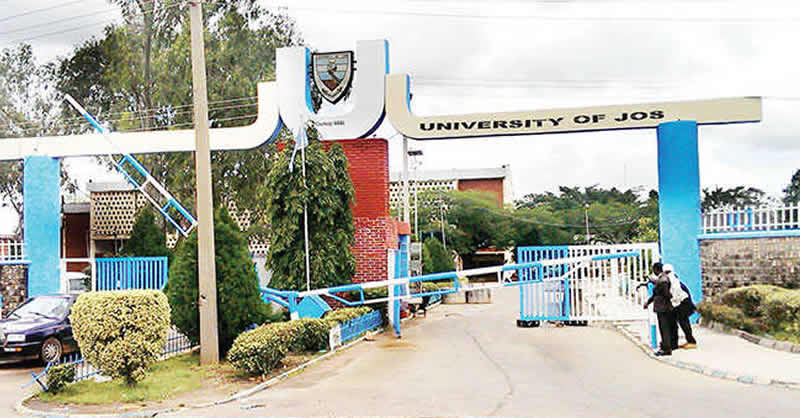
The University of Jos (UNIJOS), located in Jos, Plateau State, is a federal university established in 1975. Known for its commitment to academic excellence, research, and social impact, UNIJOS has grown to become one of Nigeria’s most respected institutions of higher learning. Its Faculty of Law, founded in 1980, has built a solid reputation for producing highly skilled legal professionals, judges, and policymakers who have made significant contributions to Nigeria’s legal landscape.
The Faculty of Law at UNIJOS is structured to provide students with a comprehensive understanding of legal principles, jurisprudence, and practical legal training. The faculty is organized into departments such as Public Law, Private and Property Law, Commercial Law, and International Law and Jurisprudence, ensuring students gain well-rounded legal knowledge and are prepared to excel in courtrooms, corporate offices, and public service roles.
One of the defining strengths of UNIJOS’s Faculty of Law is its focus on practical legal education. Students participate in moot court competitions, mock trials, and legal aid clinics, gaining hands-on experience in advocacy, dispute resolution, and legal advisory services. These activities prepare students for the realities of legal practice and help develop their critical thinking, public speaking, and problem-solving skills.
The faculty also emphasizes legal research and scholarship, encouraging students and faculty members to engage in research projects that address national and global legal challenges. Research areas often include human rights law, environmental law, constitutional law, and commercial law, with findings regularly published in reputable academic journals and policy papers.
The UNIJOS Law Library is well-stocked with legal texts, journals, case law reports, and digital legal resources, providing students and faculty members with the tools needed to excel in legal research and academic study.
UNIJOS’s Faculty of Law is also deeply committed to community engagement and social justice advocacy. Through its Legal Aid Clinic, law students and faculty provide pro bono legal services to underserved communities, offering legal assistance in matters related to land disputes, human rights abuses, and social justice issues. These initiatives not only address critical societal concerns but also instill in students a sense of responsibility, empathy, and service to humanity.
The faculty frequently organizes legal seminars, workshops, and public lectures, often featuring renowned judges, senior advocates of Nigeria (SANs), policymakers, and legal academics. These events expose students to emerging trends in law and global best practices, bridging the gap between academic theory and professional practice.
Another strength of UNIJOS’s Faculty of Law lies in its focus on ethics and professionalism. Students are trained to uphold the highest ethical standards in legal practice, emphasizing integrity, accountability, and justice as core values of the legal profession.
The alumni network of UNIJOS’s Faculty of Law is one of its most valuable assets. Graduates of the faculty have excelled as judges, senior advocates of Nigeria (SANs), corporate legal advisers, academics, and policymakers, contributing meaningfully to Nigeria’s legal, economic, and social development. This network continues to provide mentorship, career guidance, and professional support to current students.
In addition to its strong academic focus, UNIJOS takes pride in its culturally diverse student body. Students from various backgrounds come together to learn, collaborate, and grow, fostering an environment of tolerance, unity, and shared purpose.
With its commitment to legal research, focus on practical legal training, emphasis on ethics and professionalism, and an influential alumni network, the University of Jos (UNIJOS) remains one of Nigeria’s leading institutions for legal education. Its graduates are equipped with the knowledge, skills, and integrity needed to excel in diverse legal environments and contribute to building a just and equitable society.
7. University of Benin (UNIBEN)

The University of Benin (UNIBEN), located in Benin City, Edo State, is a federal university established in 1970. Known for its academic excellence, commitment to research, and focus on community development, UNIBEN has become one of Nigeria’s most respected higher education institutions. Its Faculty of Law, founded in 1981, has consistently ranked among the best in the country, producing outstanding legal professionals, judges, policymakers, and academics who have significantly impacted Nigeria’s legal system.
The Faculty of Law at UNIBEN is designed to provide students with a comprehensive understanding of legal theory, principles, and practice. The faculty offers a robust curriculum, with departments including Public Law, Private Law, Commercial Law, and Jurisprudence and International Law. This diverse academic structure ensures that students are equipped with in-depth knowledge of various areas of law, enabling them to pursue careers in judiciary, corporate law, academia, and public administration.
One of the standout features of UNIBEN’s Faculty of Law is its commitment to practical legal training and real-world exposure. Students actively participate in moot court competitions, mock trials, and legal aid clinics, where they gain hands-on experience in advocacy, legal drafting, and conflict resolution. These activities prepare students to navigate courtroom proceedings, corporate negotiations, and alternative dispute resolution mechanisms with confidence and professionalism.
The faculty also emphasizes research-driven legal education, encouraging both students and faculty members to engage in cutting-edge legal research projects. Research at UNIBEN’s Faculty of Law focuses on areas such as human rights law, constitutional law, commercial arbitration, environmental law, and intellectual property law. Findings from these research initiatives are regularly published in academic journals and policy papers, contributing to the development of Nigeria’s legal landscape.
The Law Library at UNIBEN is one of the most resourceful in the country, equipped with legal texts, case law reports, academic journals, and digital databases. These resources support academic research, legal scholarship, and professional development, ensuring students have access to the latest legal information and literature.
Community engagement is also a core focus at the Faculty of Law. Through its Legal Aid Clinic, students and faculty provide pro bono legal services to underserved communities, addressing issues such as land disputes, domestic violence, and access to justice. These initiatives not only serve as practical training platforms but also reflect the faculty’s commitment to social justice and public service.
UNIBEN’s Faculty of Law regularly hosts legal seminars, workshops, and public lectures featuring renowned judges, senior advocates of Nigeria (SANs), legal scholars, and policymakers. These events expose students to emerging legal trends, contemporary challenges, and real-world legal scenarios, bridging the gap between theory and practice.
The alumni network of UNIBEN’s Faculty of Law is one of its greatest strengths. Graduates of the faculty have excelled in various sectors of the legal profession, including judiciary, corporate law, academia, and public policy. Many alumni have become Senior Advocates of Nigeria (SANs), judges of superior courts, and notable legal practitioners, serving as role models and mentors to current students.
UNIBEN also emphasizes ethical standards and professionalism in legal practice. Students are trained to uphold the principles of justice, fairness, and integrity, ensuring that they become responsible legal practitioners who contribute positively to society.
With its well-rounded curriculum, commitment to legal research, emphasis on practical training, focus on community engagement, and influential alumni network, the University of Benin (UNIBEN) remains one of Nigeria’s premier institutions for legal education. Its graduates are not only knowledgeable and skilled but are also agents of positive change in Nigeria’s legal and judicial systems.
8. Lagos State University (LASU)

The Lagos State University (LASU), located in Ojo, Lagos State, is a state-owned university established in 1983 by the Lagos State Government. Over the years, LASU has earned a reputation for academic excellence, practical legal training, and impactful contributions to Nigeria’s legal system. Its Faculty of Law, one of the most prestigious state-owned law faculties in the country, has consistently produced skilled lawyers, judges, and legal scholars who have excelled in courtrooms, corporate environments, and public service.
The Faculty of Law at LASU offers a dynamic and comprehensive curriculum tailored to equip students with theoretical knowledge, critical thinking skills, and practical legal expertise. The faculty is structured into specialized departments, including Public Law, Private and Property Law, Commercial and Industrial Law, and Jurisprudence and International Law. This structure allows students to gain a broad understanding of diverse legal disciplines, preparing them for successful careers in legal practice, academia, and policy advocacy.
One of the key strengths of LASU’s Faculty of Law is its emphasis on experiential learning and practical legal training. Students actively participate in moot court competitions, mock trials, and legal aid clinics, where they gain real-world experience in advocacy, legal drafting, and dispute resolution. Additionally, students undergo internship programs with leading law firms, government agencies, and corporate organizations, gaining exposure to professional legal practice and building essential industry connections.
The strategic location of LASU in Lagos State, Nigeria’s economic and commercial hub, provides law students with unique access to top-tier law firms, corporate legal departments, financial institutions, and government regulatory bodies. This proximity creates valuable opportunities for internships, mentorship programs, and networking, allowing students to transition seamlessly from academic study to professional practice.
LASU’s Faculty of Law is also renowned for its strong emphasis on research and scholarship. Faculty members and students engage in policy-oriented research and academic publications addressing critical areas such as constitutional law, human rights, corporate governance, environmental law, and intellectual property rights. Research findings are frequently published in academic journals and policy papers, contributing to Nigeria’s evolving legal framework.
The LASU Law Library is equipped with legal texts, case law reports, academic journals, and digital legal research databases, providing students and faculty members with the tools needed for academic excellence and professional development.
Community service and public interest advocacy are integral to LASU’s Faculty of Law. Through its Legal Aid Clinic, students and faculty provide pro bono legal services to vulnerable and underserved communities, addressing pressing issues such as land disputes, domestic violence, and access to justice. These initiatives not only deliver much-needed legal assistance but also instill in students a strong sense of responsibility, ethics, and social justice.
The faculty regularly organizes legal seminars, workshops, and guest lectures featuring senior advocates of Nigeria (SANs), judges, legal scholars, and policymakers. These events provide students with insight into emerging legal trends, contemporary challenges, and global best practices, bridging the gap between academic learning and professional application.
The alumni network of LASU’s Faculty of Law includes renowned judges, senior advocates of Nigeria (SANs), legal consultants, public administrators, and corporate lawyers who have made significant contributions to Nigeria’s legal and political systems. Many alumni remain actively involved in mentorship programs and networking initiatives, offering guidance and professional support to current students.
Ethics and professionalism are key pillars of legal education at LASU. Students are trained to uphold the highest standards of integrity, accountability, and justice in their professional practice, ensuring they become trustworthy and responsible legal practitioners.
With its commitment to academic excellence, focus on practical legal training, emphasis on legal research, and strong industry connections, the Lagos State University (LASU) continues to rank among Nigeria’s top institutions for legal education. Its graduates are well-prepared to excel in courtrooms, corporate settings, academia, and public service, contributing meaningfully to the growth and integrity of Nigeria’s legal system.
9. Ahmadu Bello University (ABU)

The Ahmadu Bello University (ABU), located in Zaria, Kaduna State, is a federal university established in 1962 and named after Sir Ahmadu Bello, the Sardauna of Sokoto and one of Nigeria’s founding fathers. As one of the oldest and most prestigious universities in Nigeria, ABU has played a key role in advancing legal education, research, and policy development in the country. Its Faculty of Law, one of the earliest established law faculties in Nigeria, remains a cornerstone of legal education and judicial training in West Africa.
The Faculty of Law at ABU is structured to provide students with comprehensive legal education that balances theoretical knowledge, research, and practical training. The faculty is organized into several specialized departments, including Commercial Law, Public Law, Private and Property Law, Islamic Law, and International Law and Jurisprudence. This structure enables students to develop specialized expertise in various fields of law and prepares them for careers in litigation, corporate law, academia, and public administration.
A defining feature of ABU’s Faculty of Law is its diverse curriculum, which integrates Nigerian legal traditions, international law, and Islamic jurisprudence. The university’s unique location in northern Nigeria positions it as a leader in Sharia Law education, making it a pivotal institution for students interested in both conventional and Islamic legal systems.
The faculty emphasizes practical legal training, with students actively participating in moot court competitions, mock trials, and legal aid programs. These platforms offer students hands-on experience in advocacy, litigation, and dispute resolution, preparing them for the realities of legal practice. Additionally, students undergo internships with top-tier law firms, government agencies, and corporate legal departments, allowing them to gain practical exposure and industry connections.
Research is at the heart of ABU’s legal education. Faculty members and students are deeply engaged in legal research projects that address critical societal issues such as constitutional law, human rights, Islamic finance law, environmental law, and commercial arbitration. The findings from these research initiatives are frequently published in reputable academic journals and policy papers, contributing to national and international legal scholarship.
The ABU Law Library is one of the most resource-rich legal libraries in Nigeria, housing an extensive collection of legal texts, case law reports, law journals, and digital databases. This robust resource base supports legal research, academic study, and professional development, ensuring students and faculty have access to the latest legal knowledge.
The faculty also organizes legal seminars, workshops, and guest lectures featuring renowned legal scholars, senior advocates of Nigeria (SANs), judges, and policymakers. These events provide students with insights into emerging legal issues, legislative trends, and real-world legal challenges, bridging the gap between academic knowledge and professional practice.
Community engagement remains a core principle at ABU’s Faculty of Law. Through its Legal Aid Clinic, students and faculty provide pro bono legal services to marginalized and underserved communities, addressing issues such as land disputes, family law cases, and human rights violations. These initiatives foster a sense of social responsibility, ethics, and empathy among students.
The alumni network of ABU’s Faculty of Law is one of the most distinguished in Nigeria, with graduates holding leadership positions as judges, senior advocates of Nigeria (SANs), academics, corporate lawyers, and policymakers. Many alumni have played significant roles in shaping Nigeria’s legal framework, constitutional reforms, and judicial systems. This strong alumni network continues to support the faculty through mentorship programs, career guidance, and professional collaboration.
Ethics and professionalism are at the heart of legal training at ABU. Students are instilled with integrity, accountability, and a deep respect for the rule of law, ensuring they emerge as responsible and ethical legal practitioners capable of contributing meaningfully to society.
With its rich history, commitment to legal research, emphasis on practical training, and strong focus on ethics and professionalism, the Ahmadu Bello University (ABU) remains one of Nigeria’s leading institutions for legal education. Its graduates continue to make remarkable contributions to the legal, corporate, and public service sectors, leaving an indelible mark on Nigeria’s legal landscape.
- Strengths: Well-structured law curriculum, experienced faculty.
- Reputation: Known for academic excellence in legal education.
- Program Duration: 5 years.
10. Babcock University
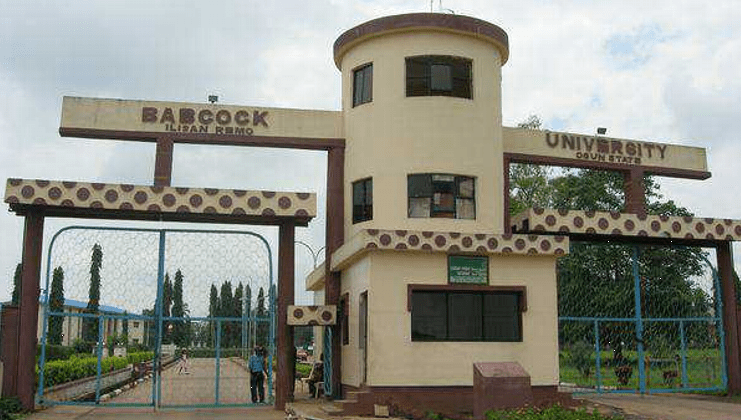
Babcock University, located in Ilishan-Remo, Ogun State, is a private Christian university established in 1999 by the Seventh-day Adventist Church in Nigeria. Known for its commitment to academic excellence, ethical leadership, and holistic education, Babcock University has become one of Nigeria’s leading institutions in legal education. Its School of Law and Security Studies, established in 2010, has rapidly gained a reputation for quality legal training, innovative teaching methods, and strong emphasis on character development and professionalism.
The School of Law and Security Studies at Babcock University offers a comprehensive and globally relevant curriculum designed to equip students with theoretical knowledge, practical legal skills, and ethical values. The school is organized into core legal departments, including Public Law, Private and Commercial Law, and International Law and Jurisprudence, allowing students to develop expertise across various fields of legal practice.
One of Babcock’s defining features is its emphasis on practical legal education and experiential learning. Students are actively engaged in moot court competitions, mock trials, legal drafting workshops, and legal aid clinics, where they gain hands-on experience in advocacy, dispute resolution, and legal advisory services. These activities prepare students to excel in courtrooms, corporate offices, and policy-making roles.
Babcock University integrates Christian values and principles into its legal education system, emphasizing integrity, accountability, and social responsibility as essential qualities for legal practitioners. This approach ensures that graduates not only excel in legal practice but also demonstrate ethical leadership and a strong commitment to justice in their professional careers.
Research is a core pillar of Babcock’s legal education. Faculty members and students actively participate in cutting-edge legal research projects addressing contemporary issues such as human rights, cyber law, environmental law, intellectual property rights, and international trade law. Research outcomes are often published in academic journals and presented at international conferences, contributing to Nigeria’s evolving legal landscape.
The Babcock Law Library is equipped with modern legal resources, including law journals, textbooks, electronic databases, and case law reports, providing students and faculty with the tools they need for in-depth legal research and academic study.
The faculty also emphasizes global exposure and cross-border legal knowledge, integrating international perspectives into the curriculum. Students are encouraged to participate in international moot competitions, exchange programs, and collaborative research initiatives with foreign universities and legal institutions.
Babcock University’s commitment to community engagement and social justice advocacy is reflected in its Legal Aid Clinic, where students provide pro bono legal services to underserved communities. These initiatives allow students to gain real-world experience while addressing pressing societal needs, including human rights violations, land disputes, and family law issues.
The university also focuses on entrepreneurship and leadership development within the legal profession. Students are encouraged to explore innovative approaches to legal practice, legal tech solutions, and public policy advocacy, preparing them to thrive in both traditional and emerging areas of legal practice.
Babcock University’s alumni network, although relatively young compared to older institutions, is growing rapidly. Graduates have gone on to establish themselves as competent legal practitioners, judges, corporate lawyers, public administrators, and academics. The alumni network remains actively engaged with the university, offering mentorship opportunities, career counseling, and professional support to current students.
The university also prioritizes ethical legal practice, training students to uphold the highest professional standards and principles of fairness, justice, and equality. This ethical foundation has earned Babcock graduates a reputation for professionalism, diligence, and reliability in the legal field.
With its state-of-the-art facilities, student-centered teaching methodologies, emphasis on ethical leadership, and strong commitment to research and practical legal training, Babcock University has established itself as one of Nigeria’s leading private institutions for legal education. Its graduates are well-equipped to excel in legal practice, corporate governance, public service, and academia, contributing to a more just and equitable society both in Nigeria and beyond.
- Strengths: Modern teaching methods, exposure to international legal systems.
- Reputation: Known for discipline and academic excellence.
- Program Duration: 5 years.
Factors to Consider When Choosing a University
When choosing a university for Engineering, Medicine, or Law, consider the following factors:
- Accreditation: Ensure the university is accredited for your chosen course.
- Facilities: Check for well-equipped labs, libraries, and teaching hospitals.
- Reputation: Research the university’s history and track record.
- Admission Requirements: Be aware of the specific requirements for each program.
- Location: Consider the university’s proximity to home and accessibility.
Conclusion
Choosing the right university for Engineering, Medicine, or Law in Nigeria is crucial for building a strong foundation for your career. Federal universities like the University of Ibadan, UNILAG, and OAU consistently rank high for these courses, while private institutions like Covenant University and Babcock University also offer quality education.
Ultimately, the best university for you depends on your academic goals, financial capacity, and personal preferences. Whichever institution you choose, dedication and hard work remain key ingredients for success in your academic journey.


Good information
Really helpful, but I want to ask a question.
UST that’s University of Science and Technology, I’d like to ask if it’s the best university for Engineering considering the factors like location and facilities.
This list is biased.for medicine,u can’t tell me lasu is better than UNN,UNIBEN, UNILORIN,BUK. There’s definitely something wrong with this list.
You never mentioned Osun State University. Osun State University has the biggest engineering building in West Africa, and there is no other university building in Nigeria bigger than the one in Osun State University.
Also, with top-notch facilities and advanced equipment for engineering students, I encourage you to do your research again. Or, you can visit the campus to witness the facilities firsthand.
Useless bigotry post. So it is majorly South West schools are doing well in those areas? I don’t blame your cheap malfunctioning chunks of brain.
😂😂😂your research is freak and biased 💔💔💔
UI Law Faculty is newer than the ones you’ve listed but in recent years their graduates have outperformed those from your preferred universities. That is a crucial comparative facor. Your presentation surely lacks objectivity.
Really, the first generation universities remain the best in all areas. Investment in them are not emergency and shoddy and they continue to get attention like the newer ones. Secondly they are the ones that parade the best of scholars. Give it to UI, Ife, UNILAG, Nsukka and ABU. All others including private and state-owned are only trying to catch up with them or emulate them.
Survey is misleading.
If Afe Babalola isn’t among the top 3 in Law, if Federal University of Technology Akure isn’t among the best in Engineering, if Uniben isn’t among the top 5 in medicine, what a survey indeed 🤦
Why is JAMB surprisingly keeping some students Admission status on Admission in Progress for two months especially Medical Students , JAMB can be sued on this , it has affected those students and put other students in advantageous position than them as they cannot access accomodation on time because of the status
OAU medical students are on Admission in Progress for two months as a result of JAMB inefficiency.
You’ve not mentioned Uniosun and Afe Babalola Universities for Law! Your so called research is incomplete
Is Nassarawa also good in
Electrical engineering
University of Nigeria nsukka wasnt mentioned as best university for medicine